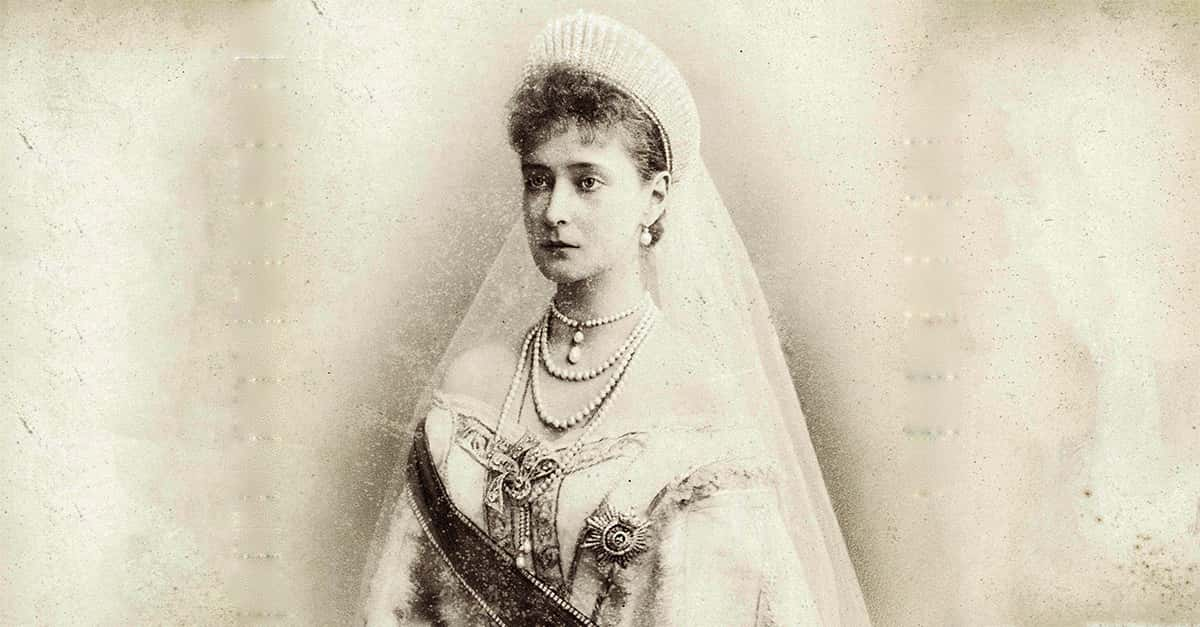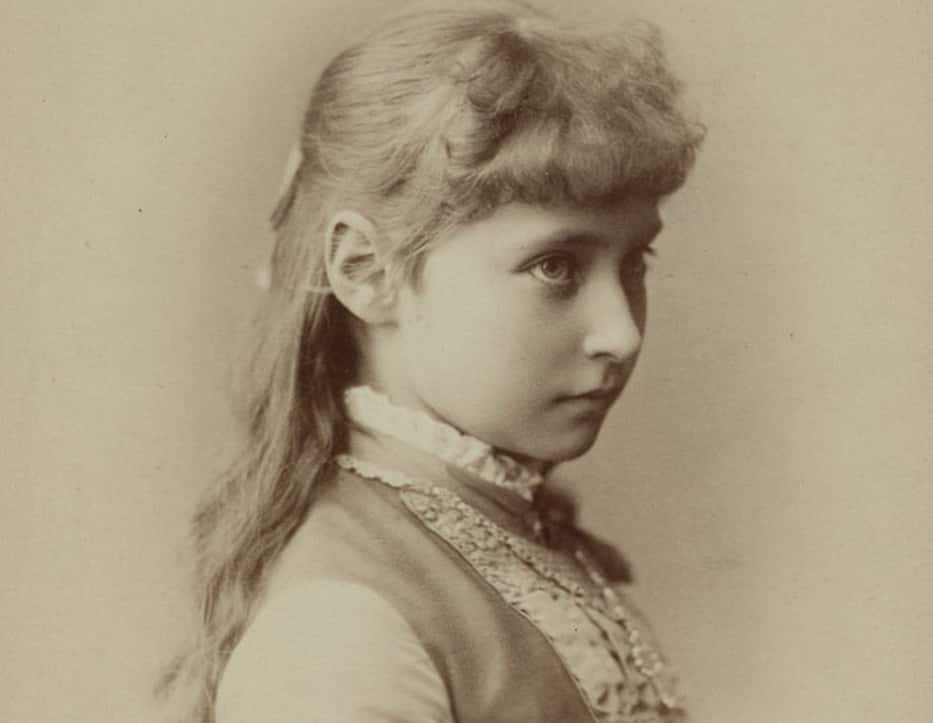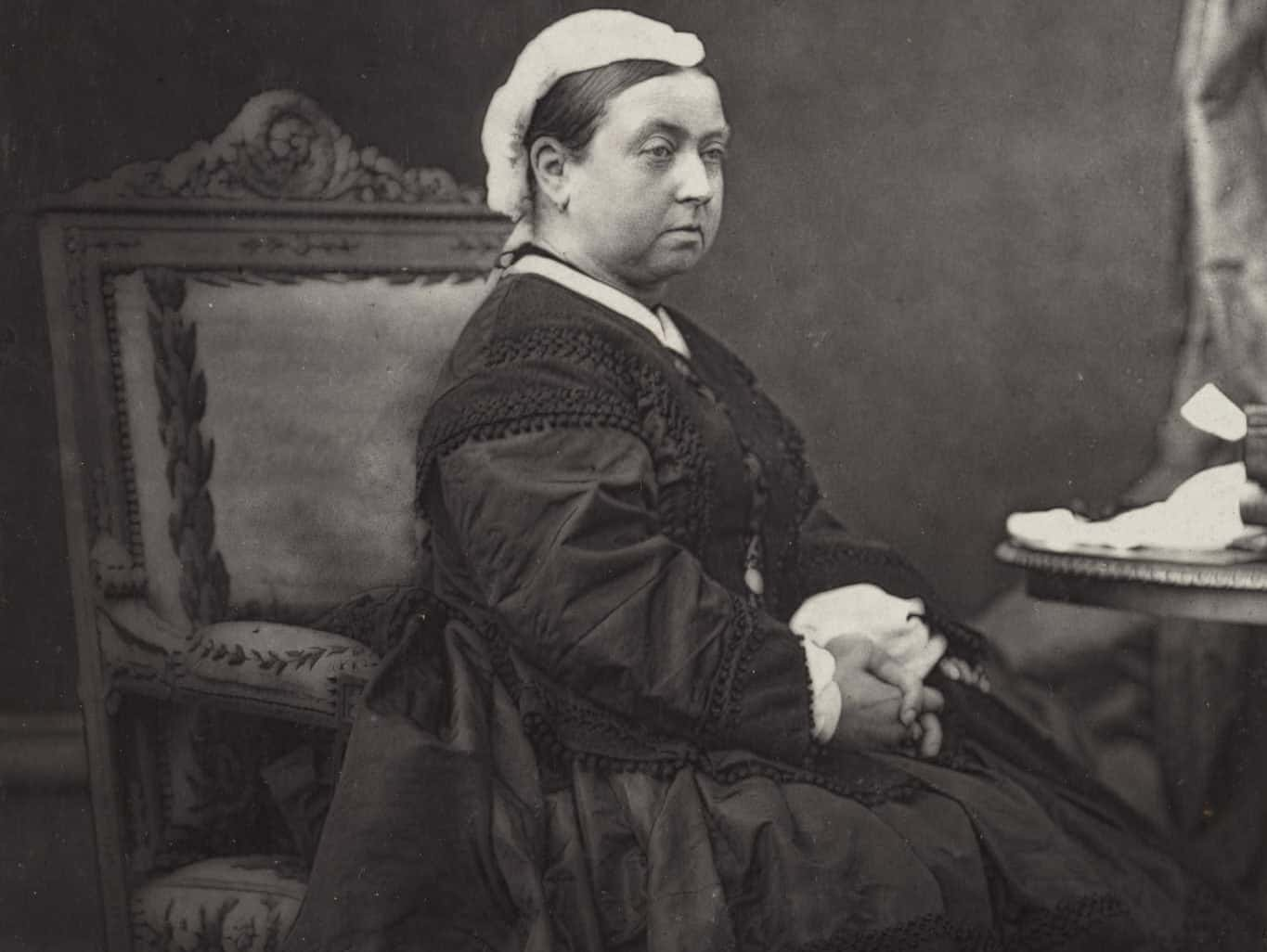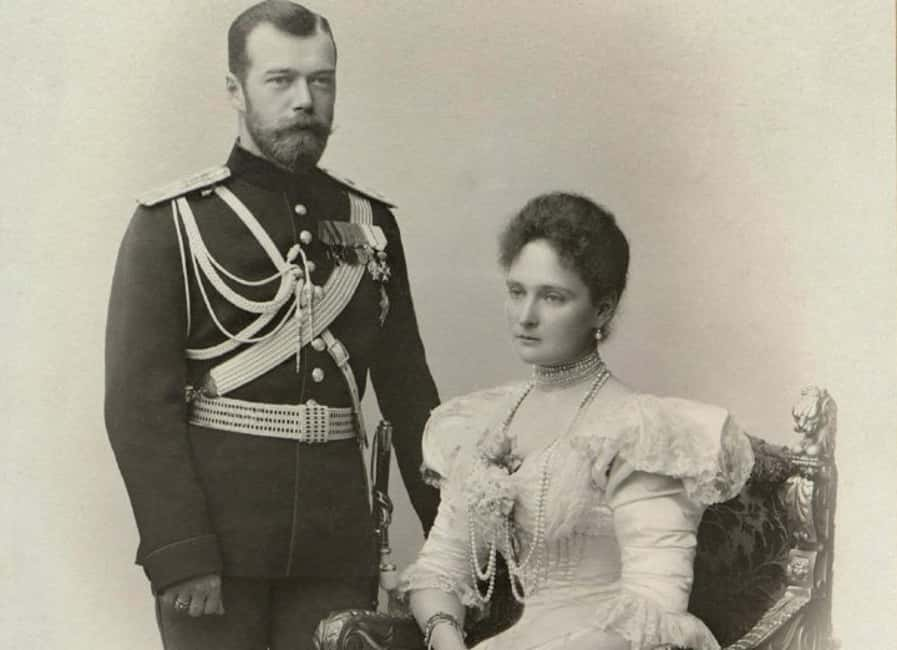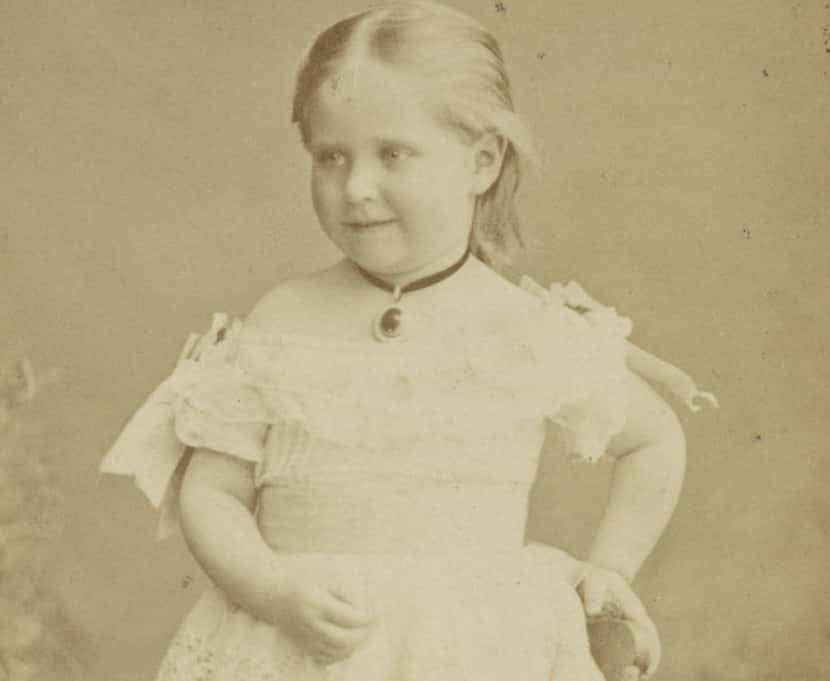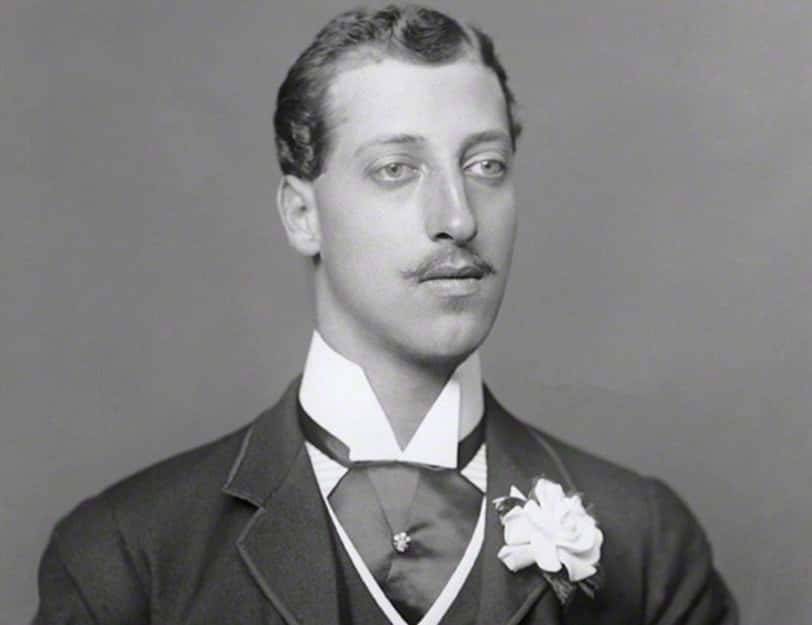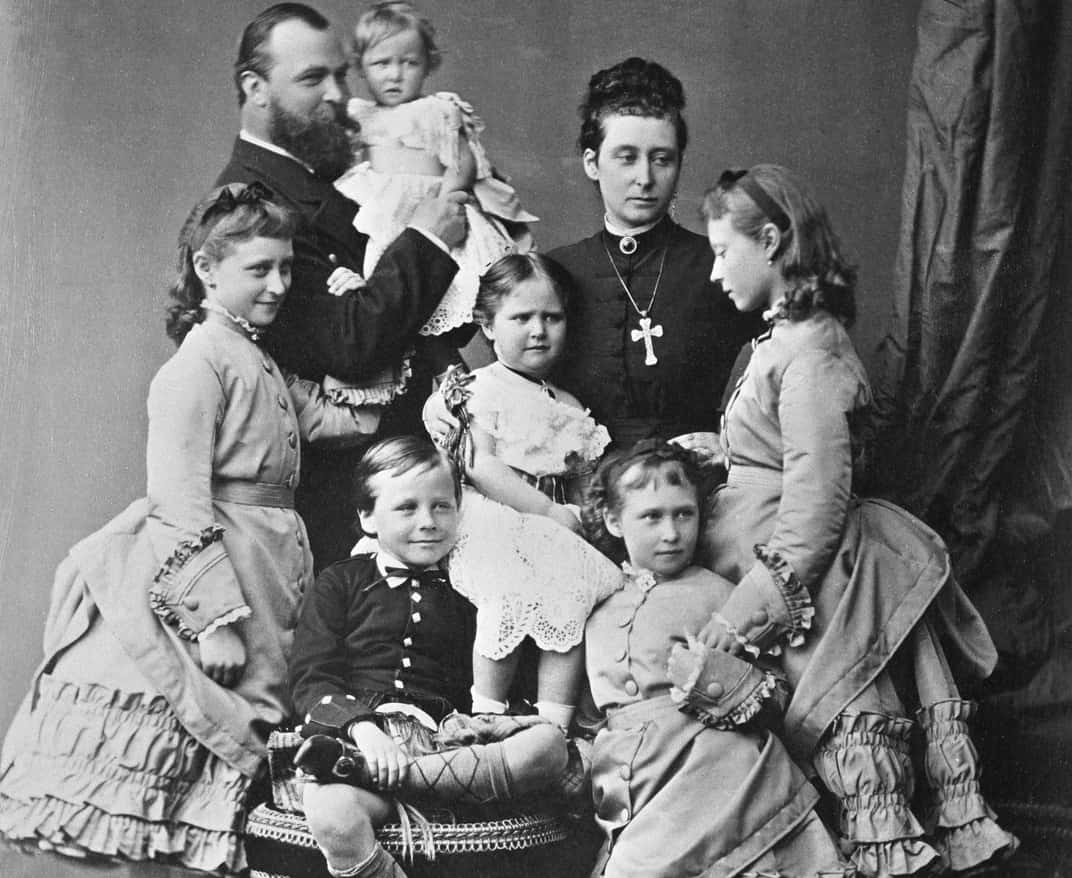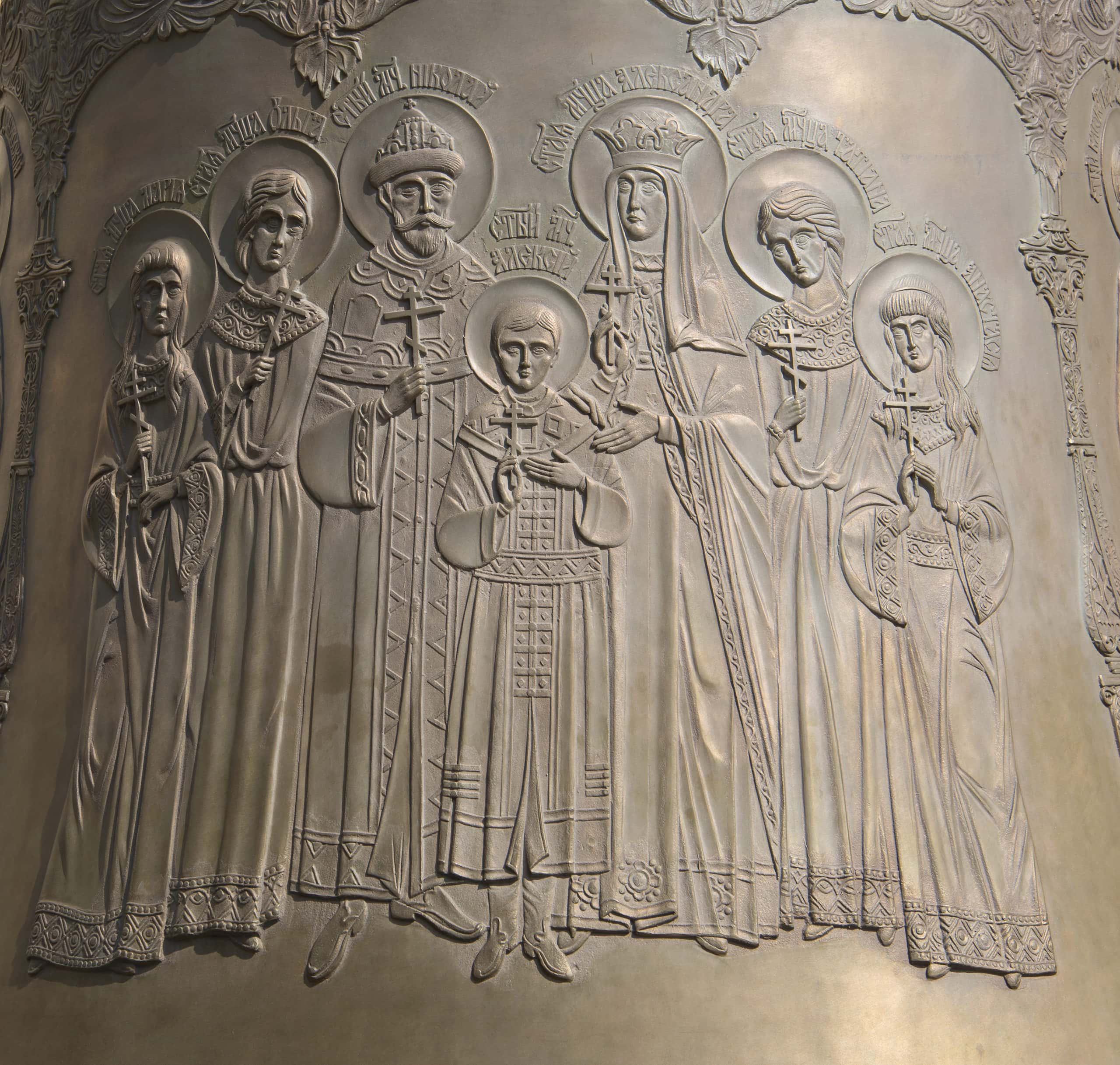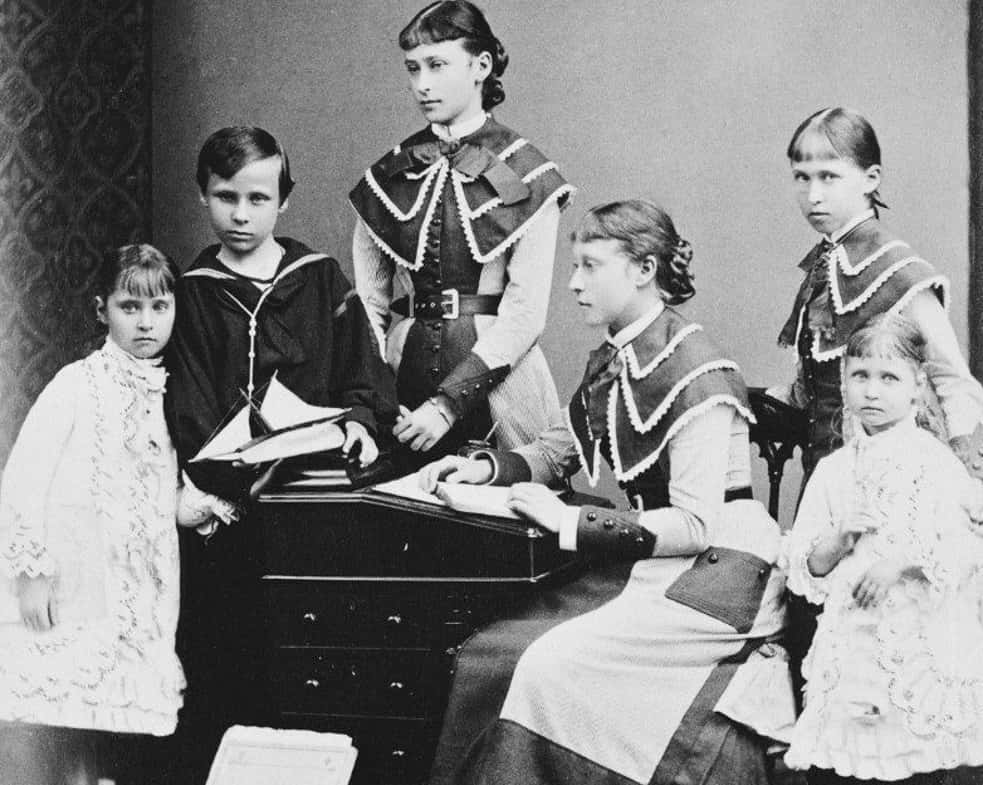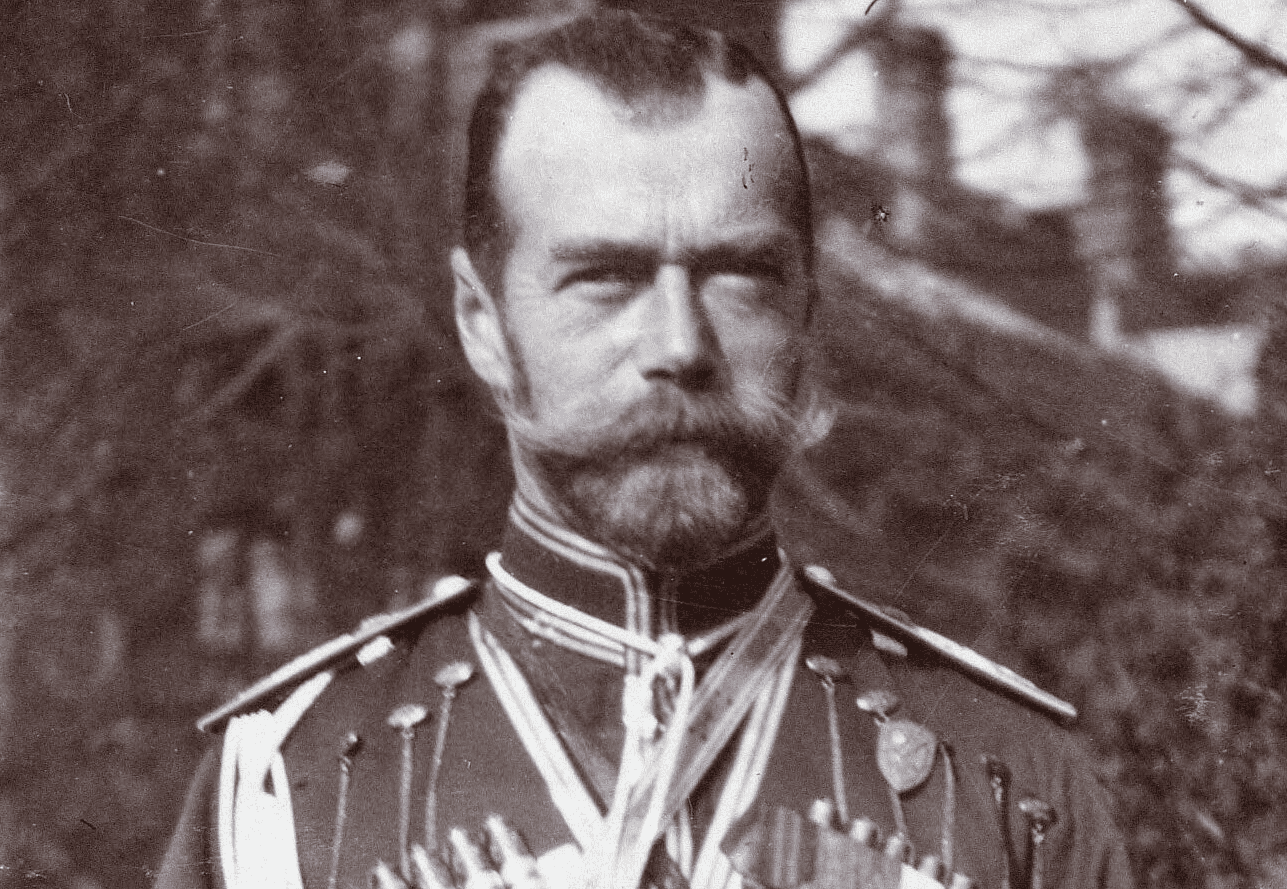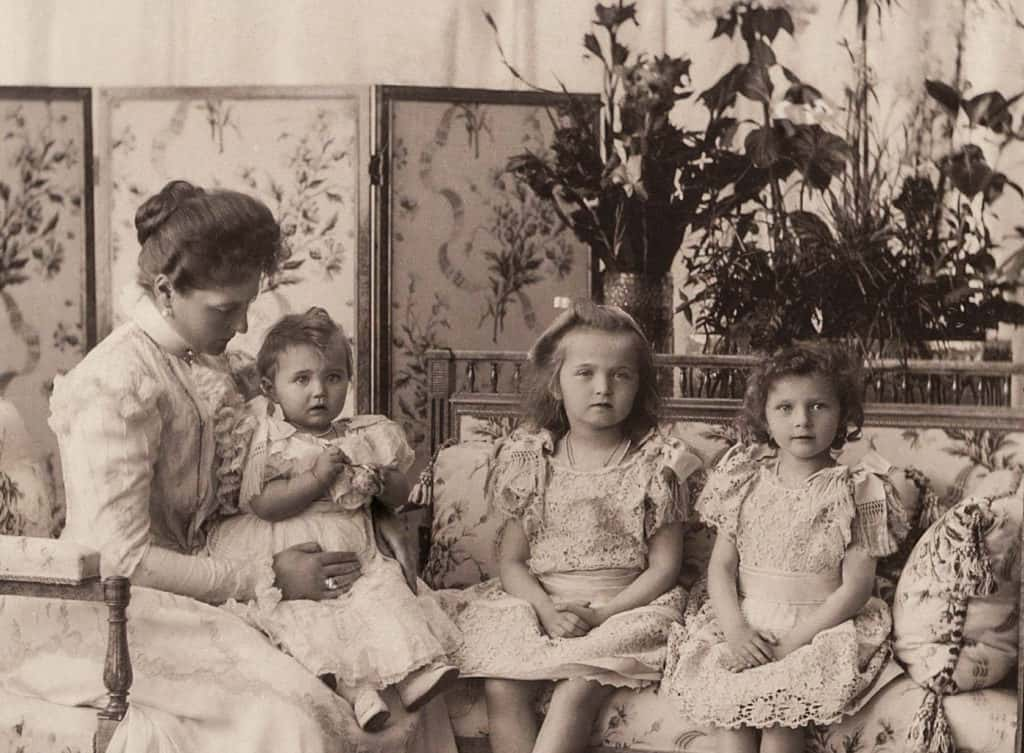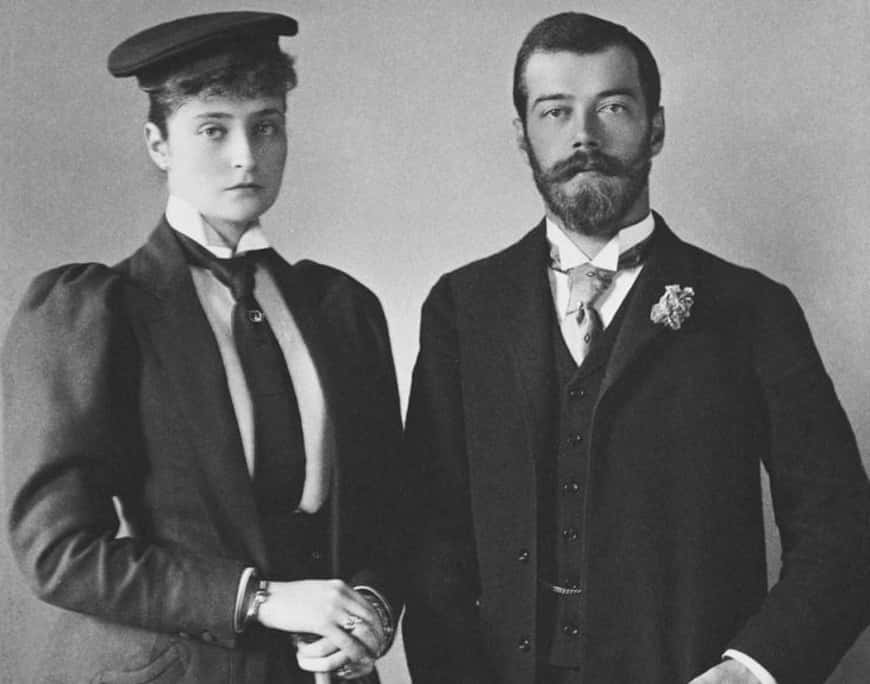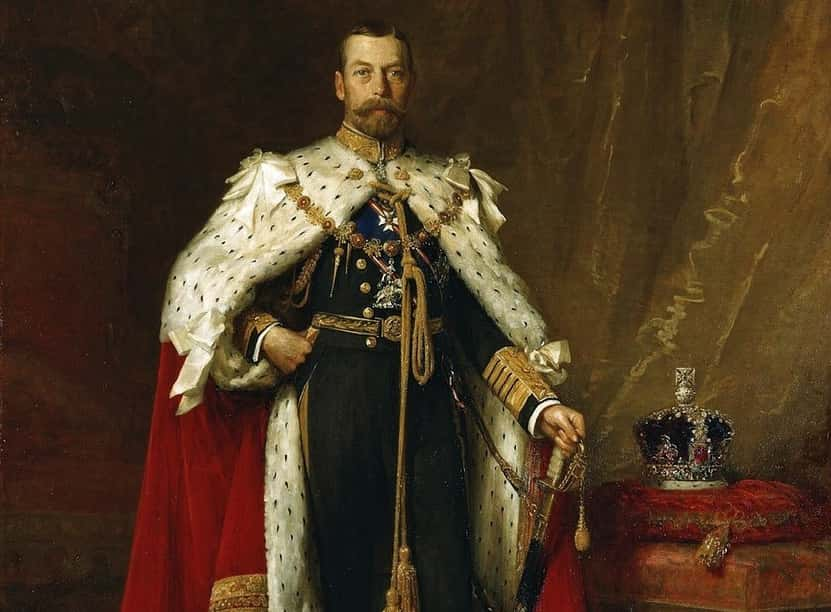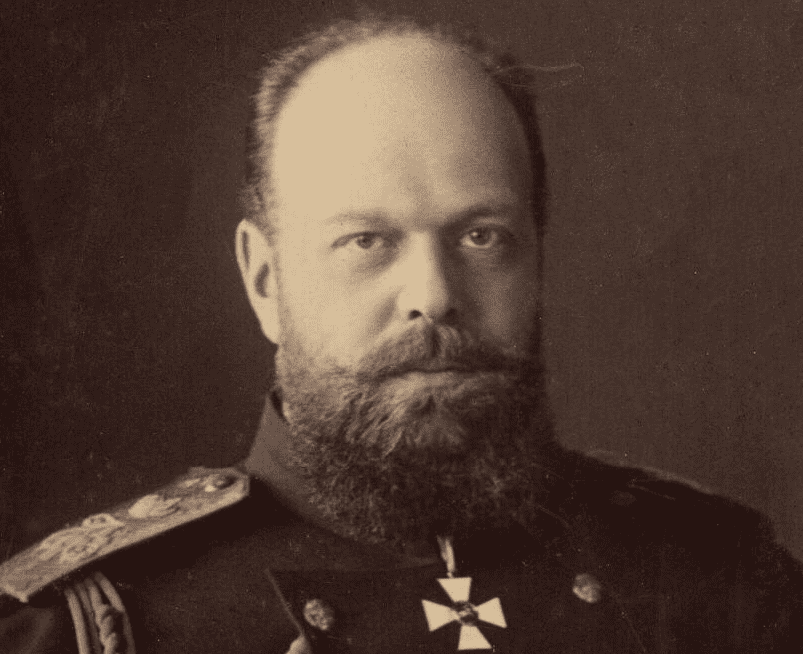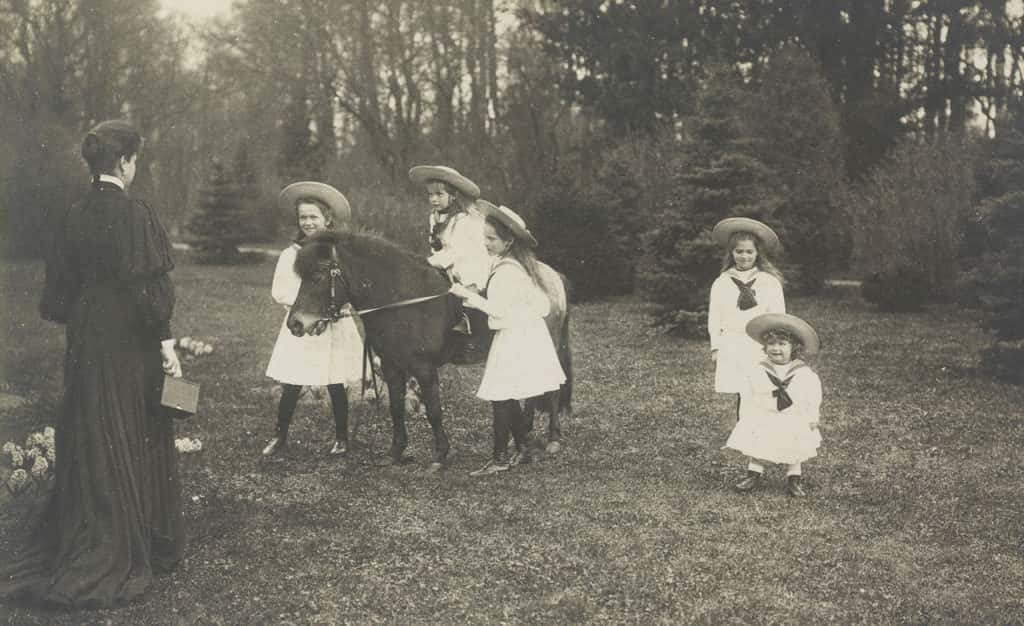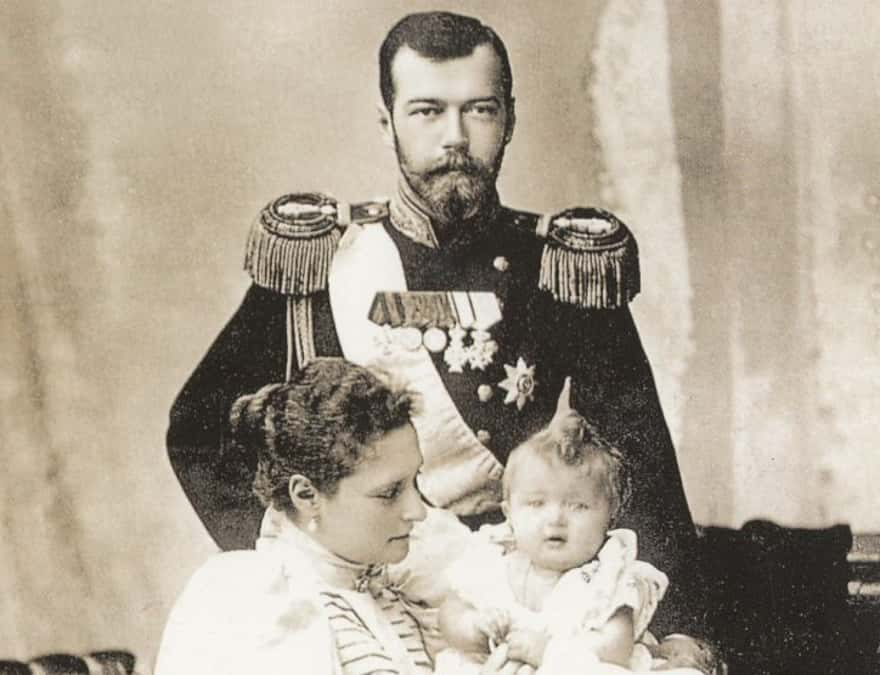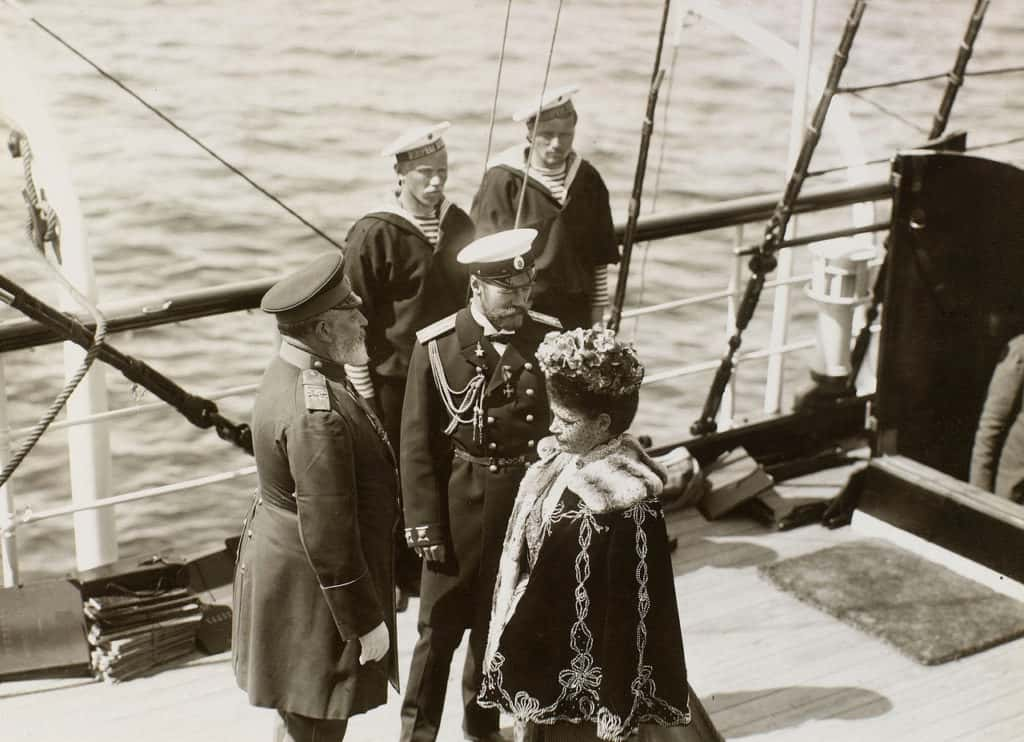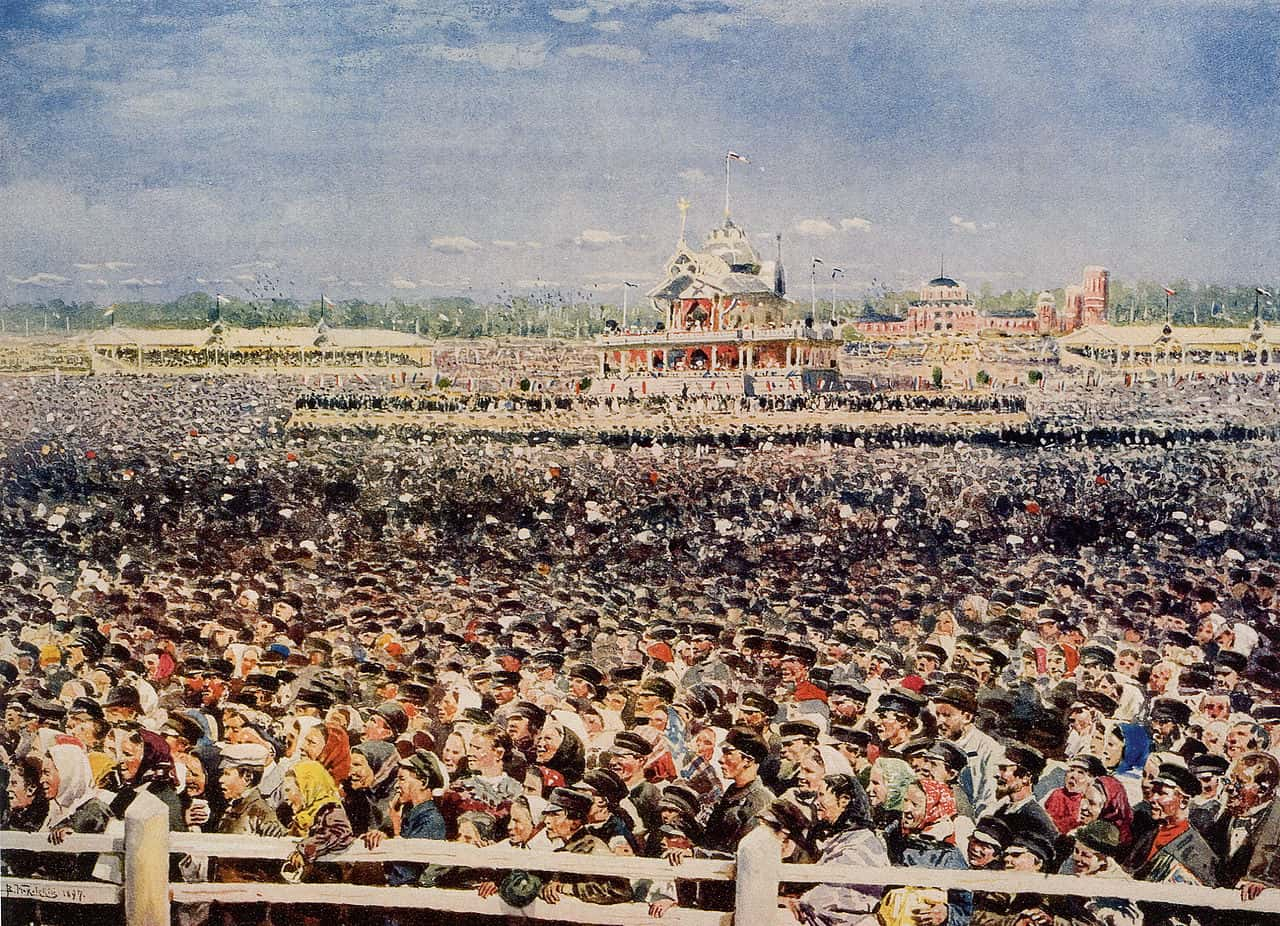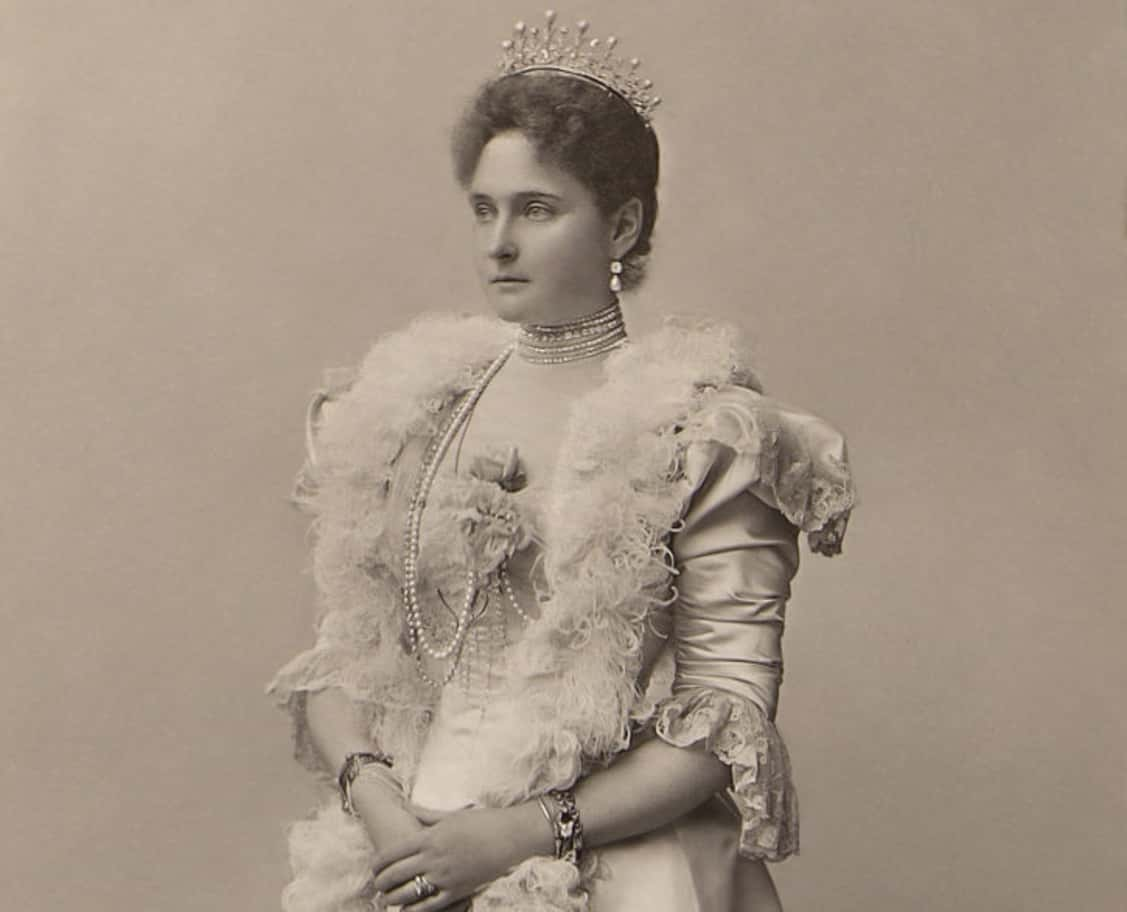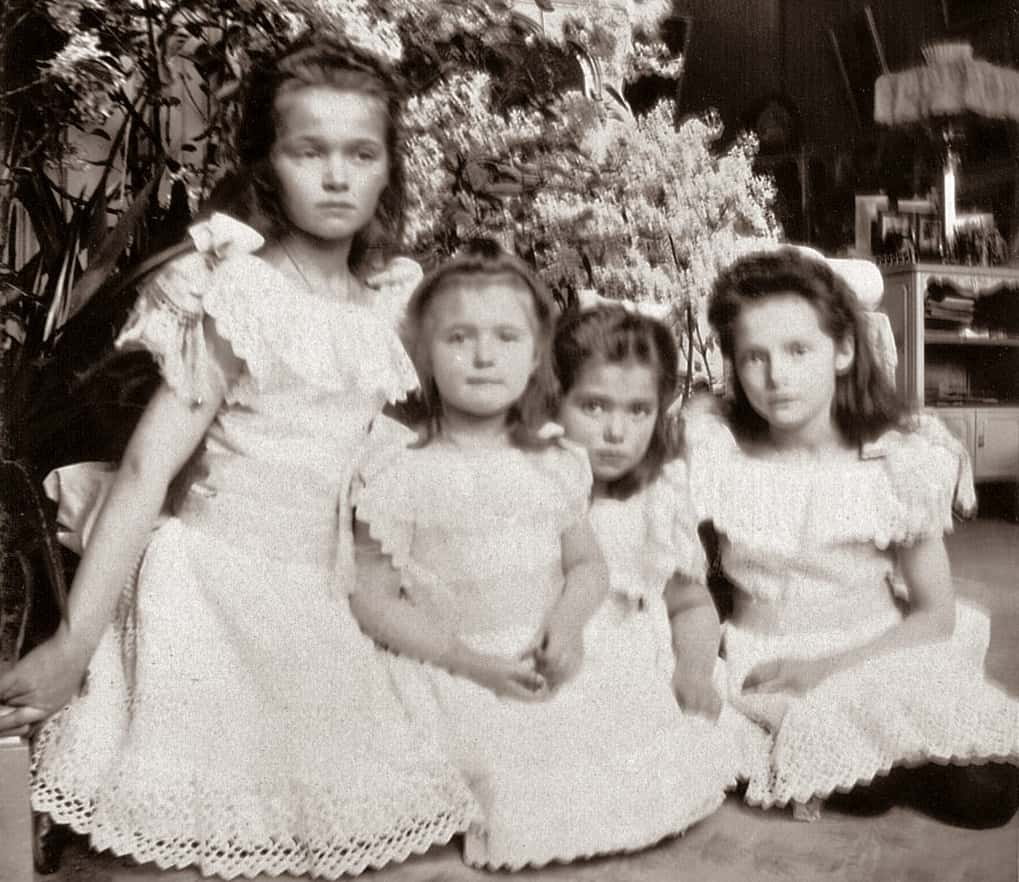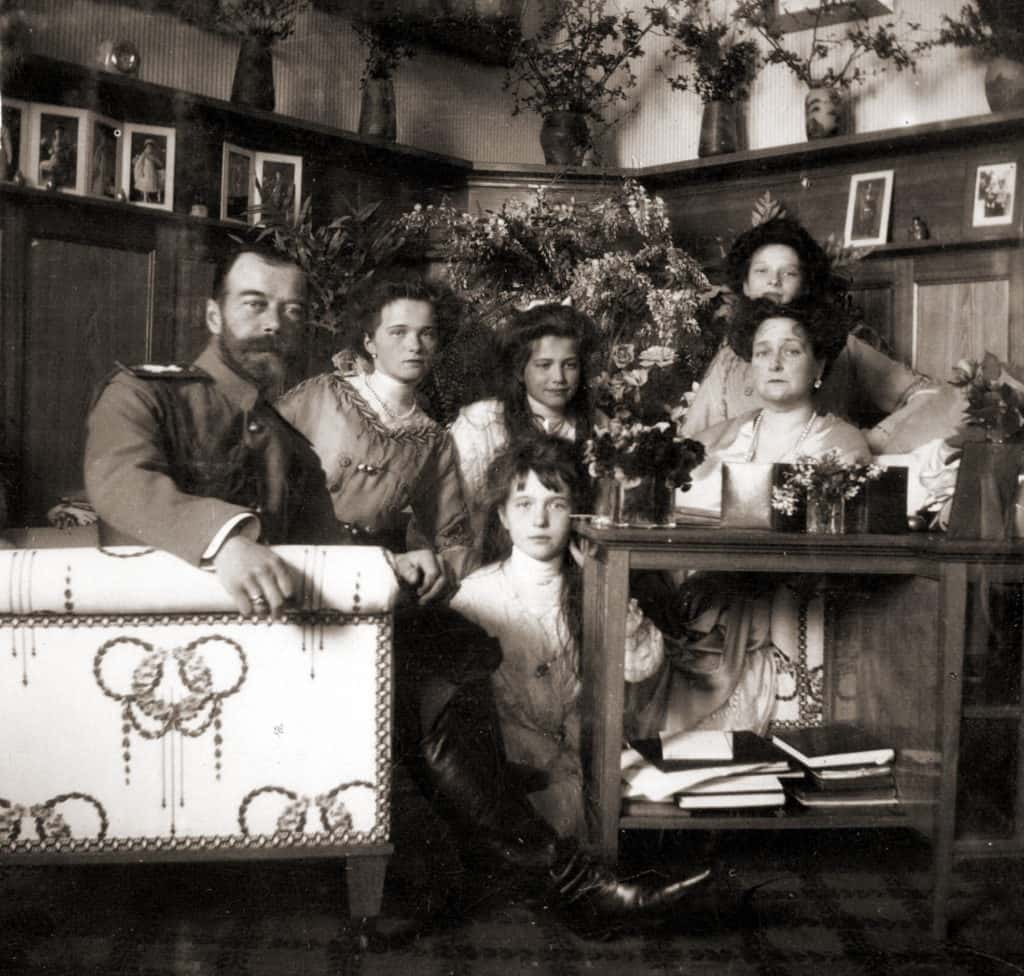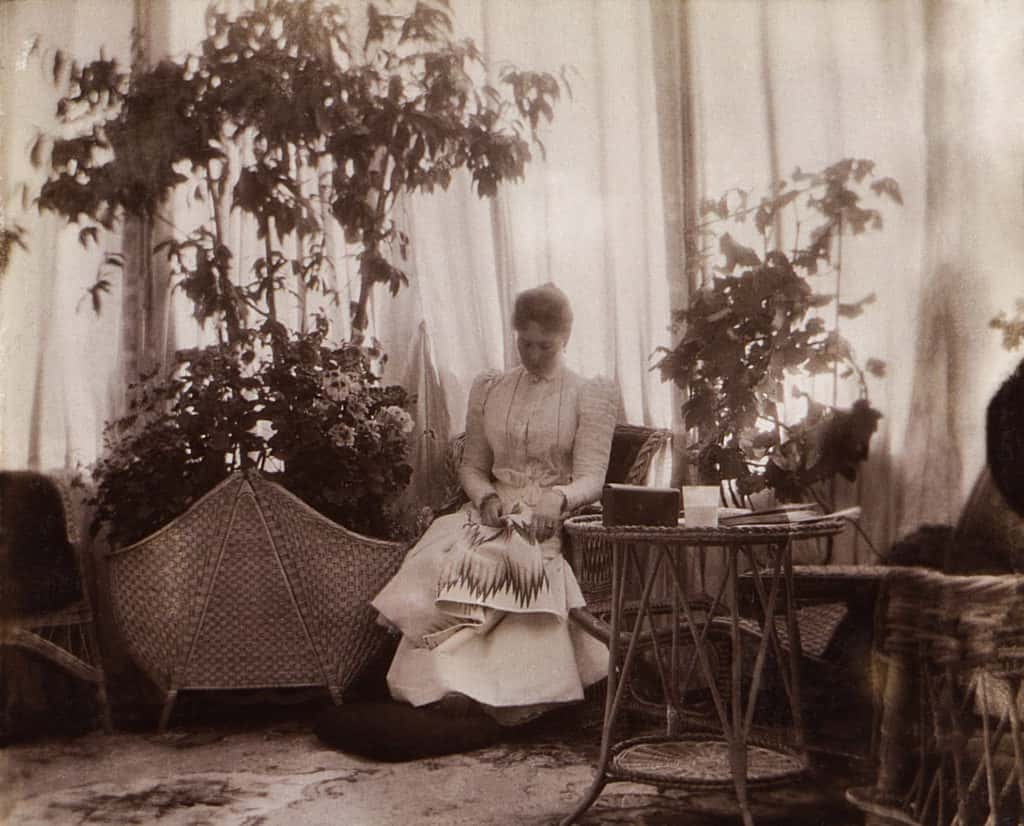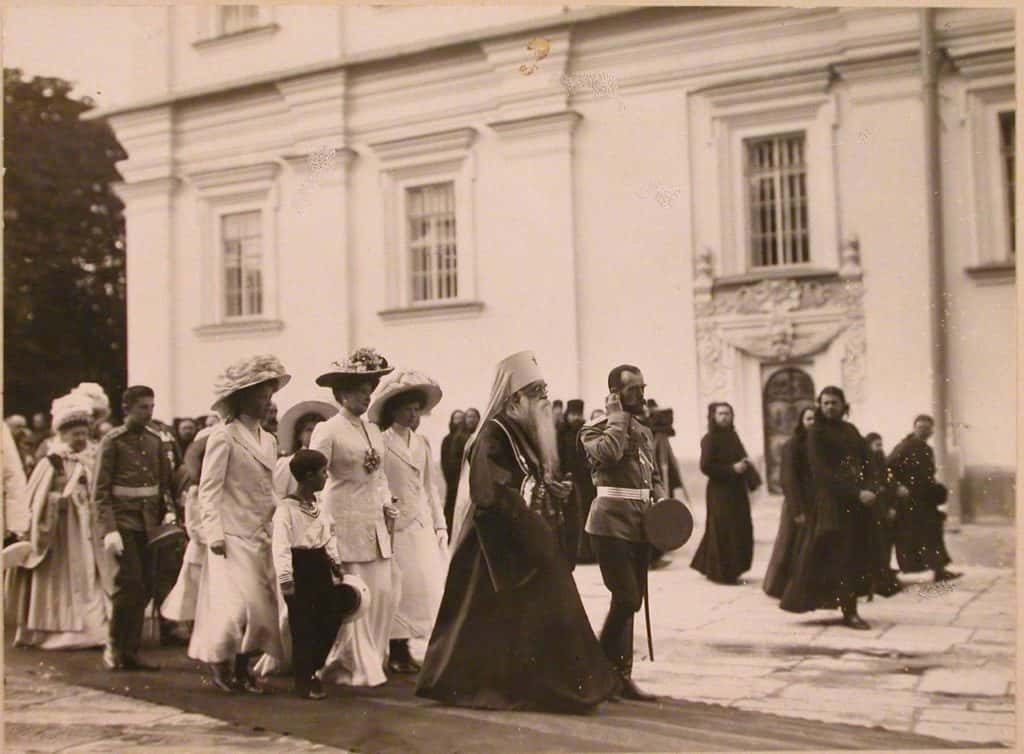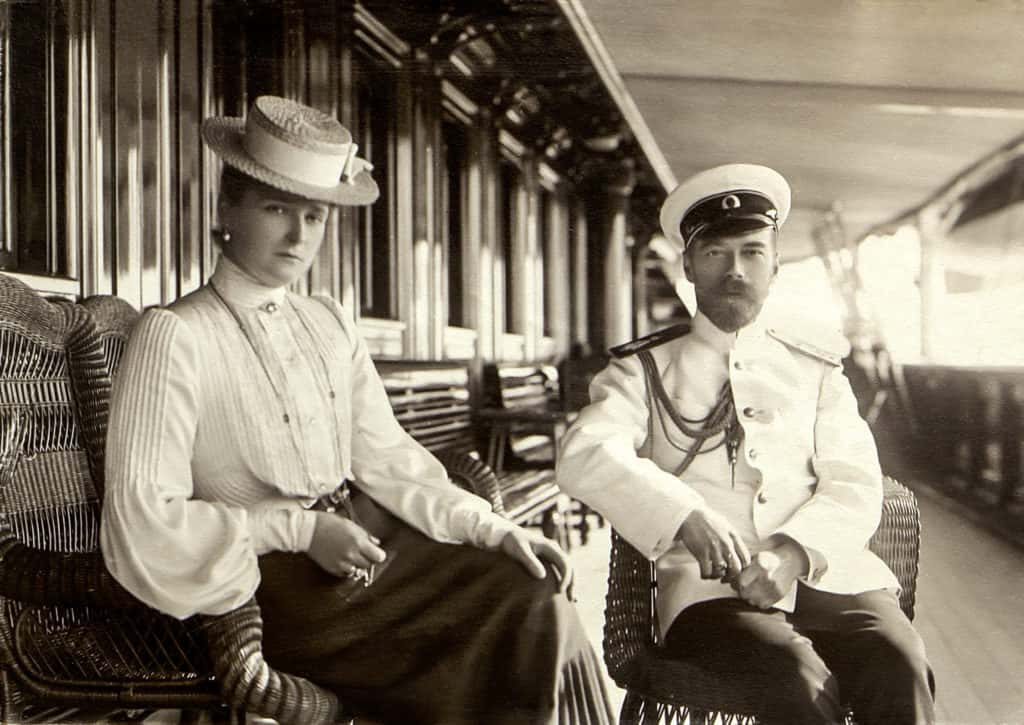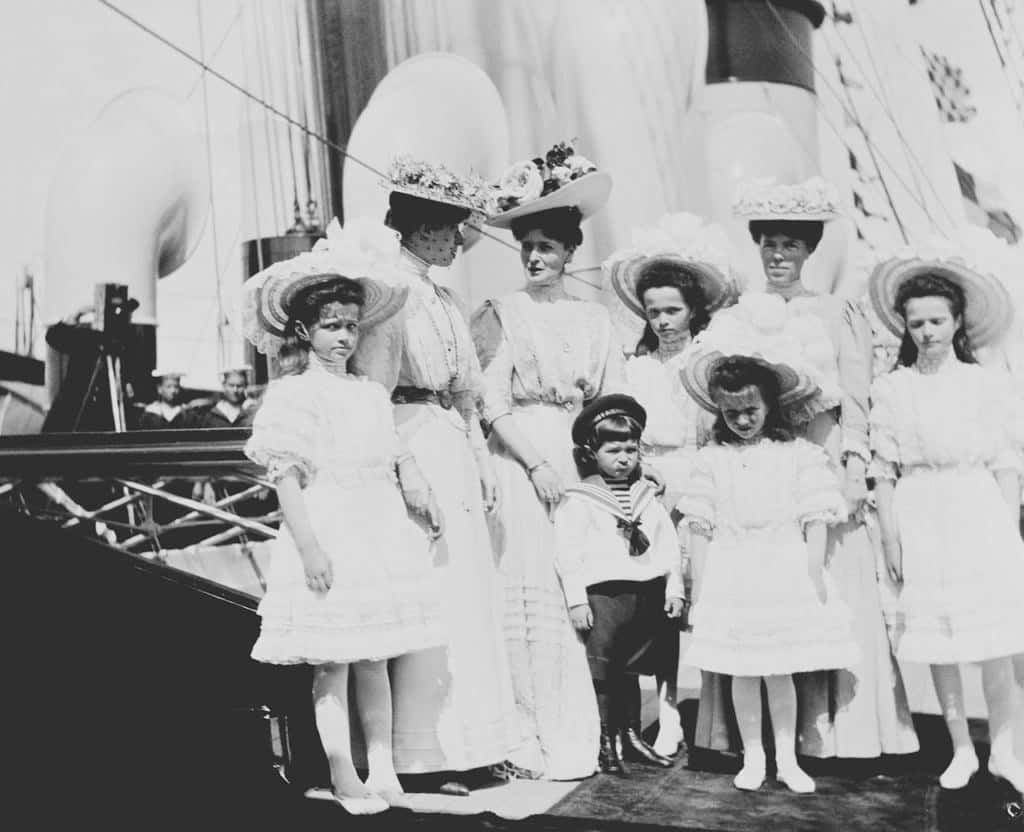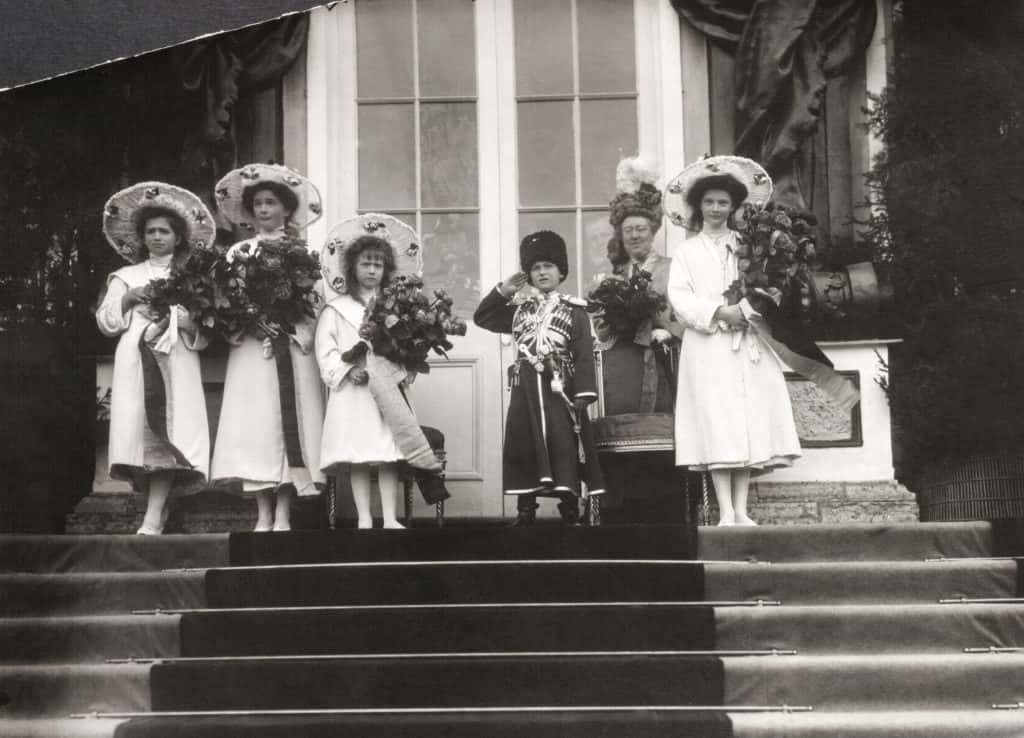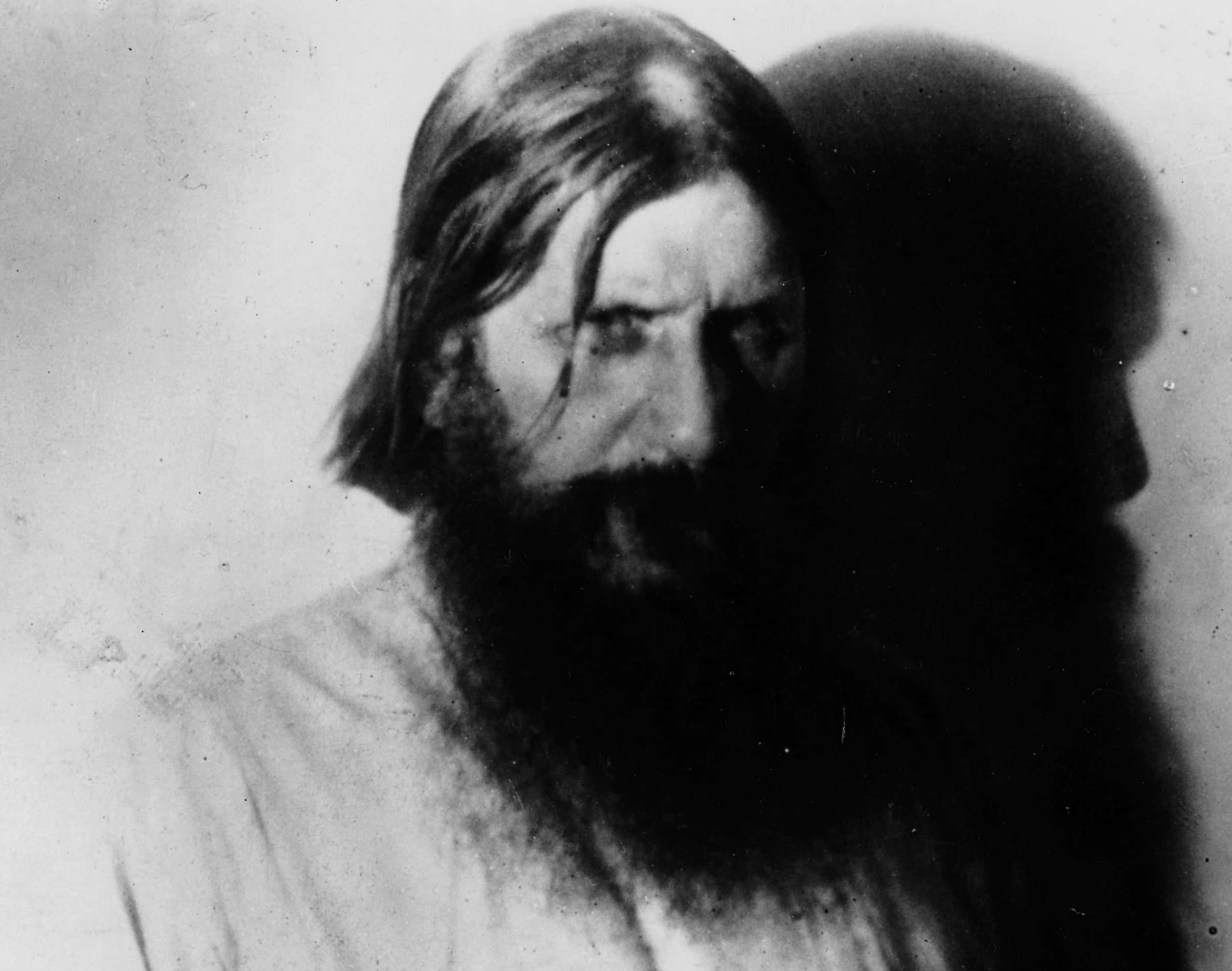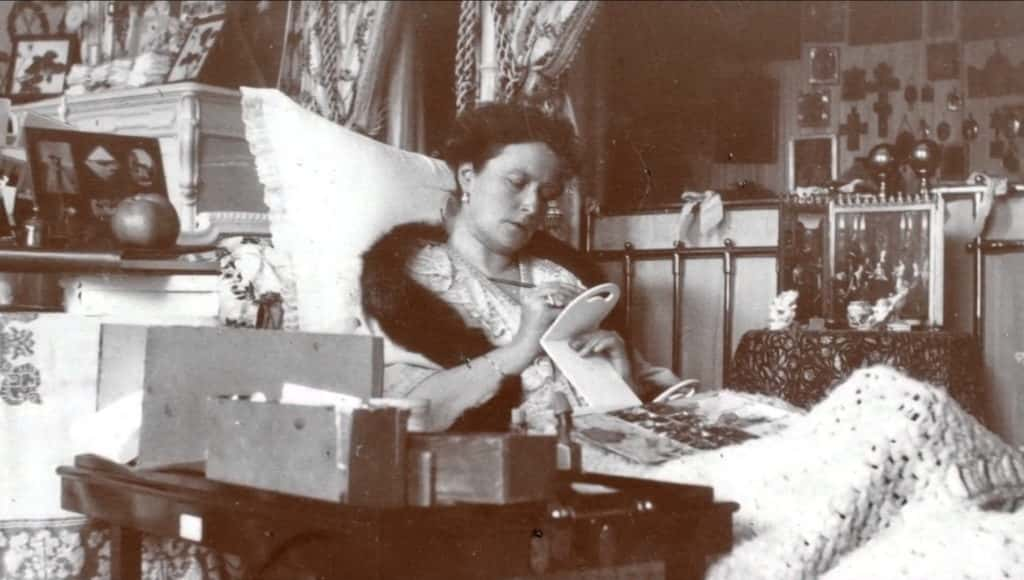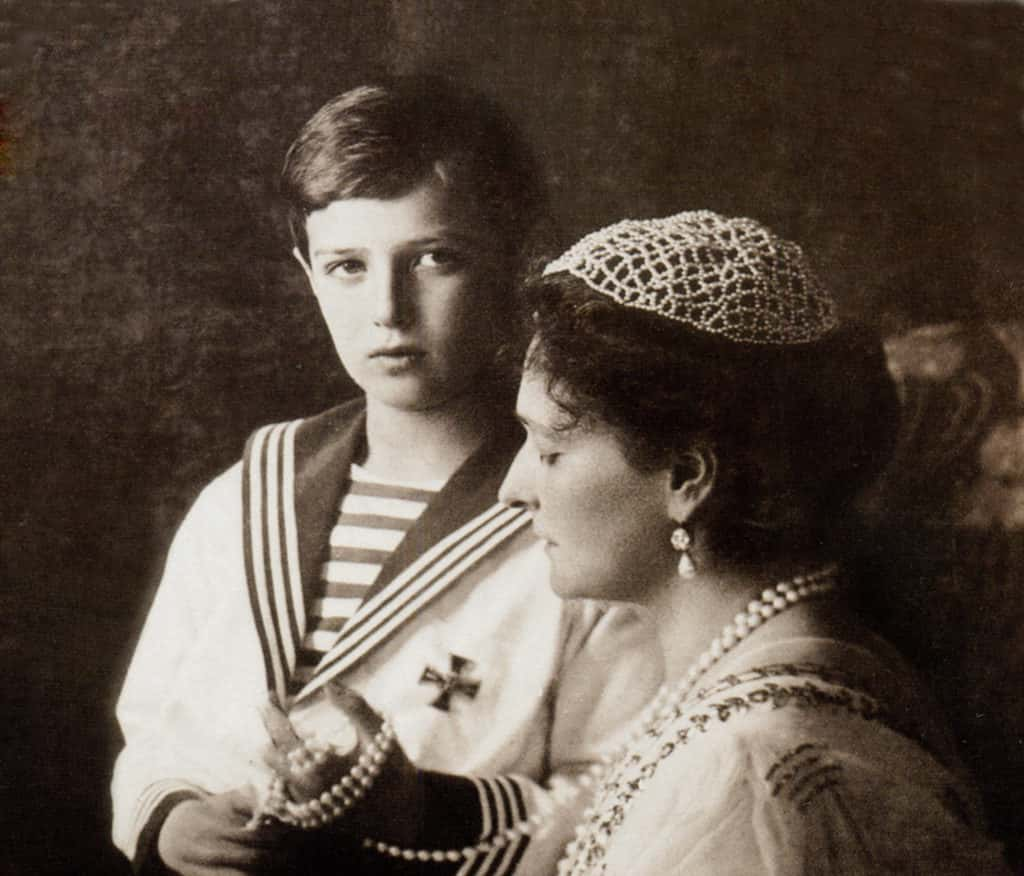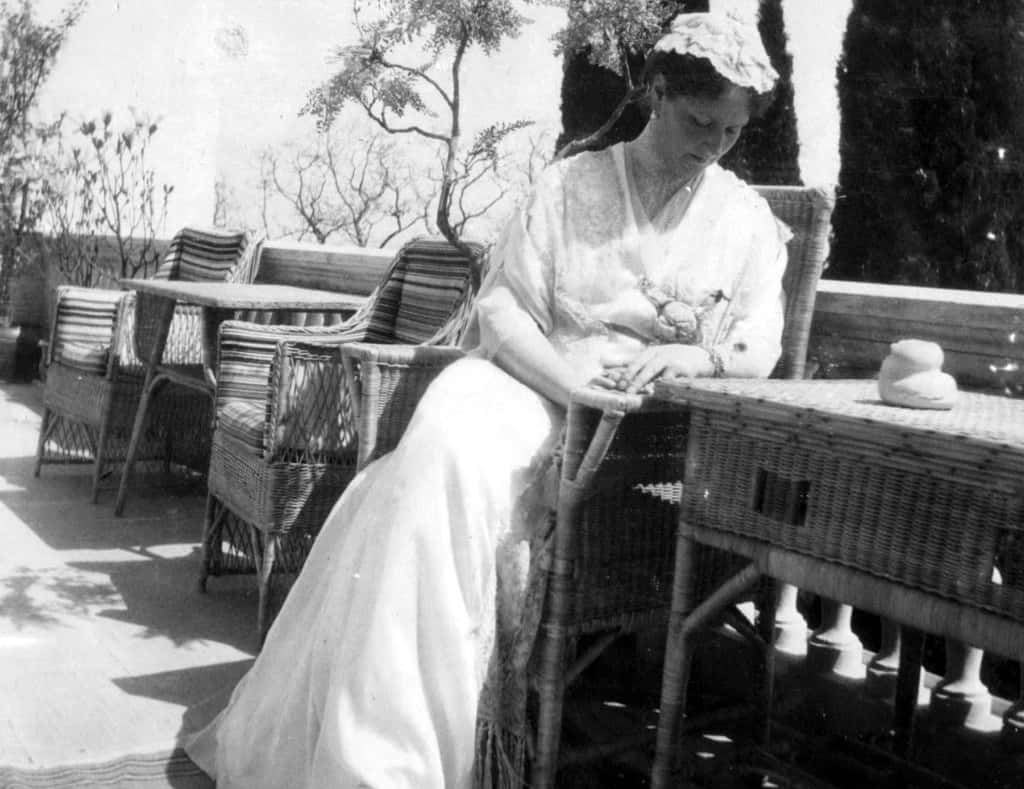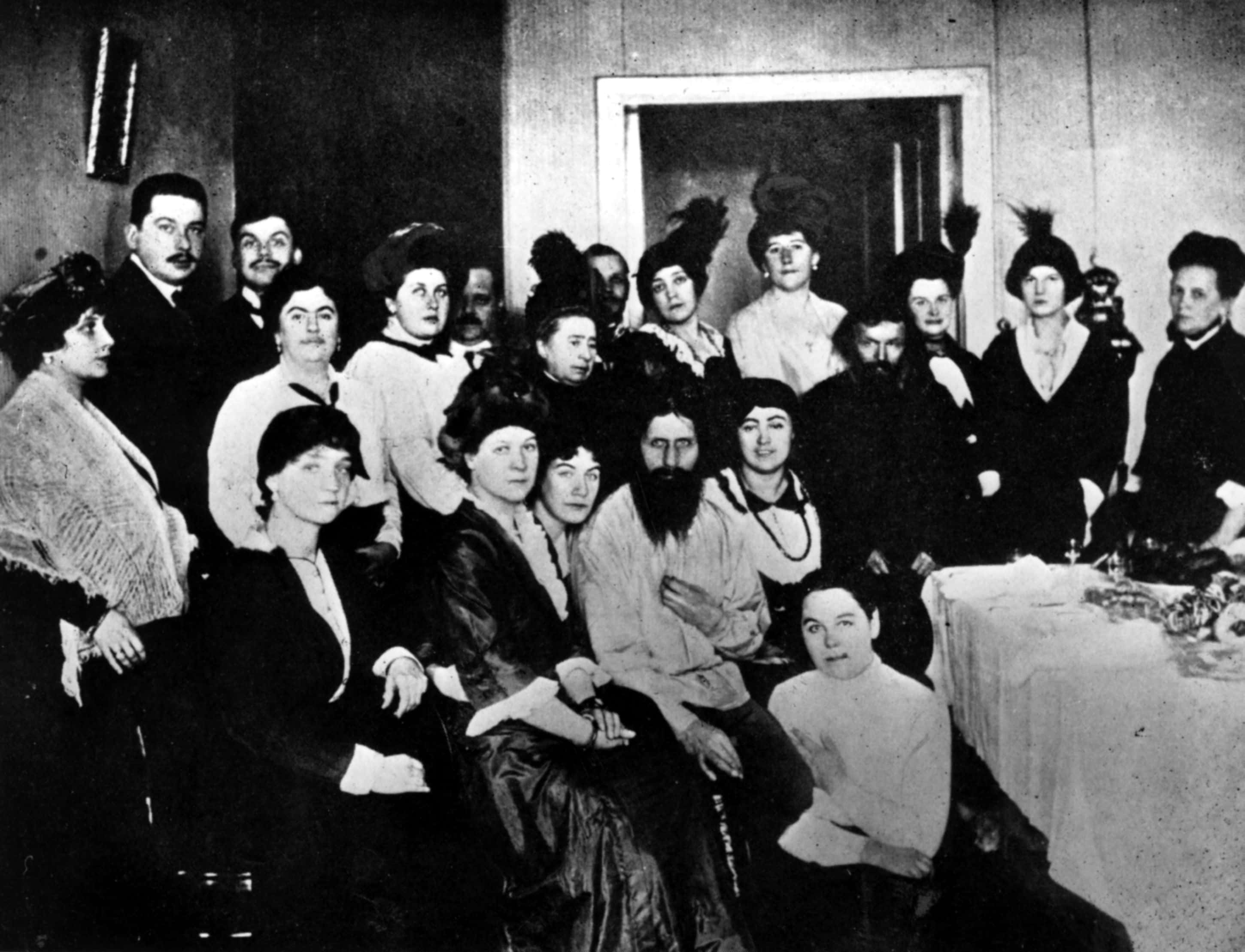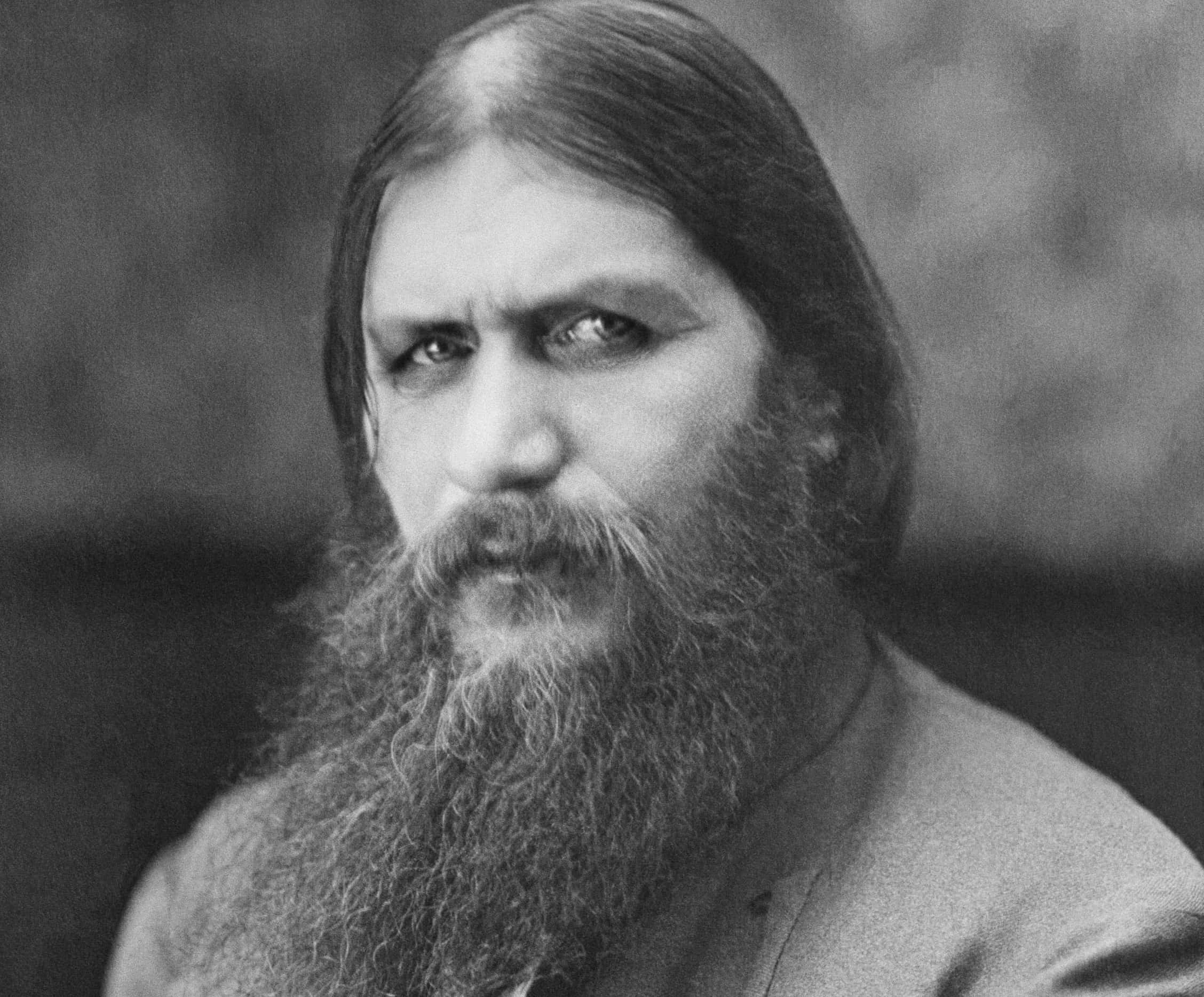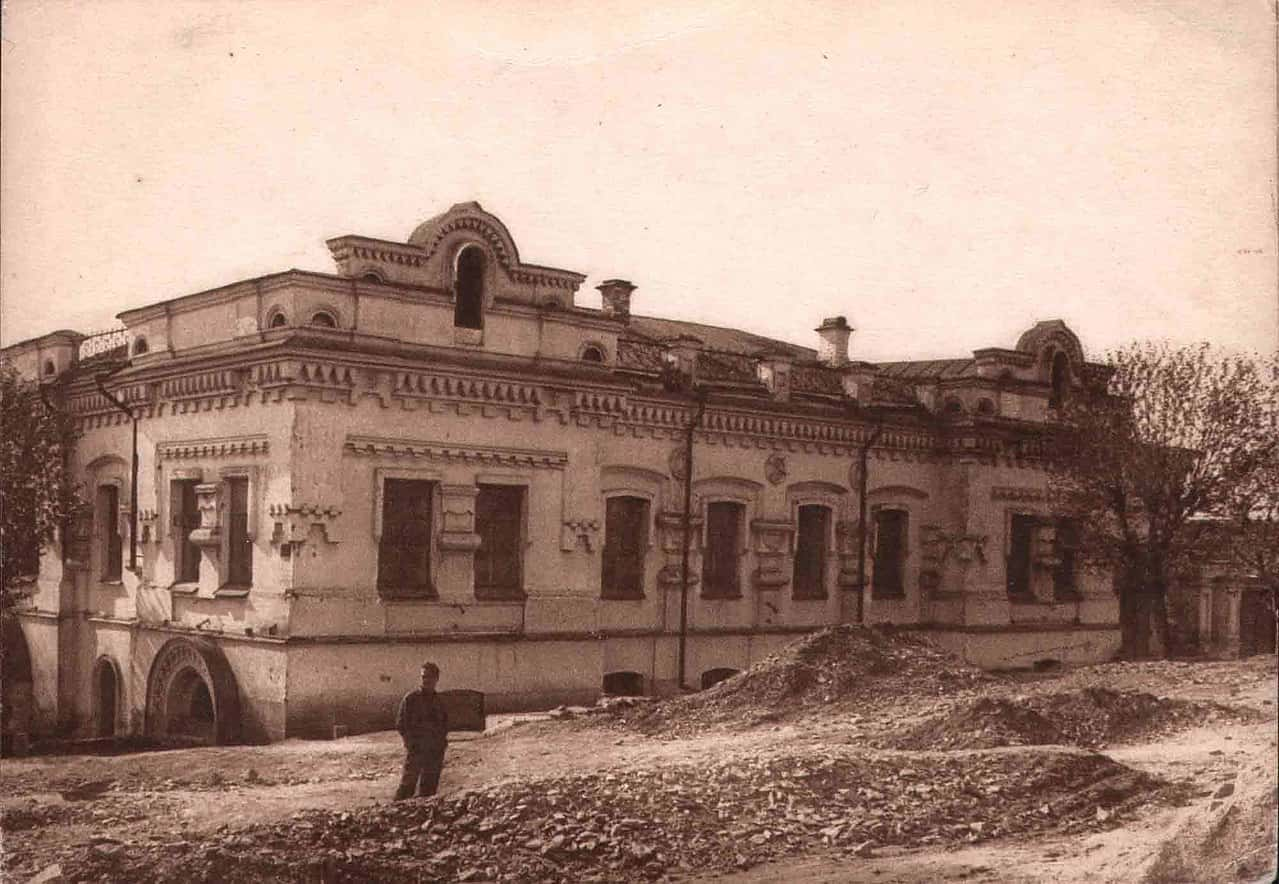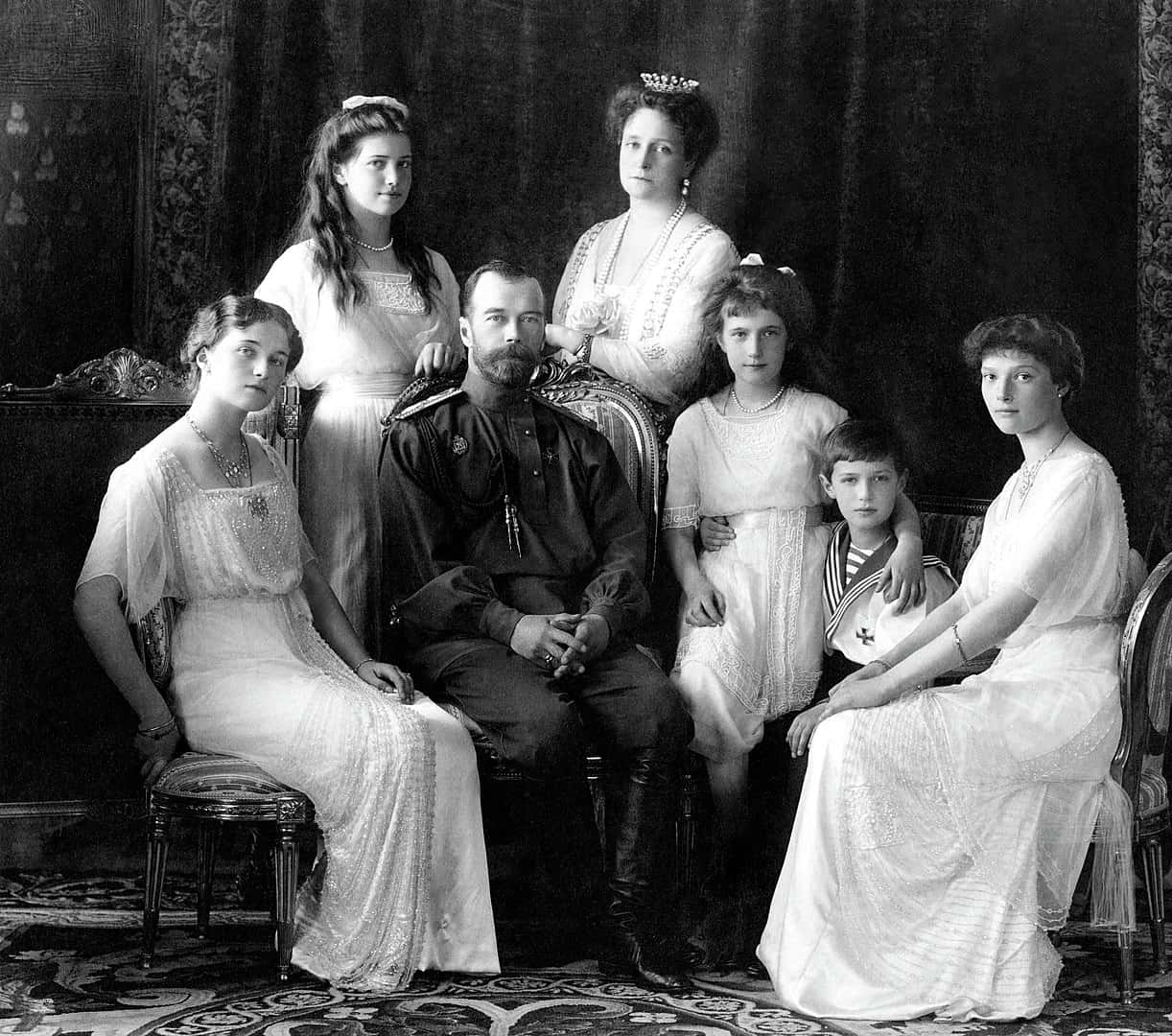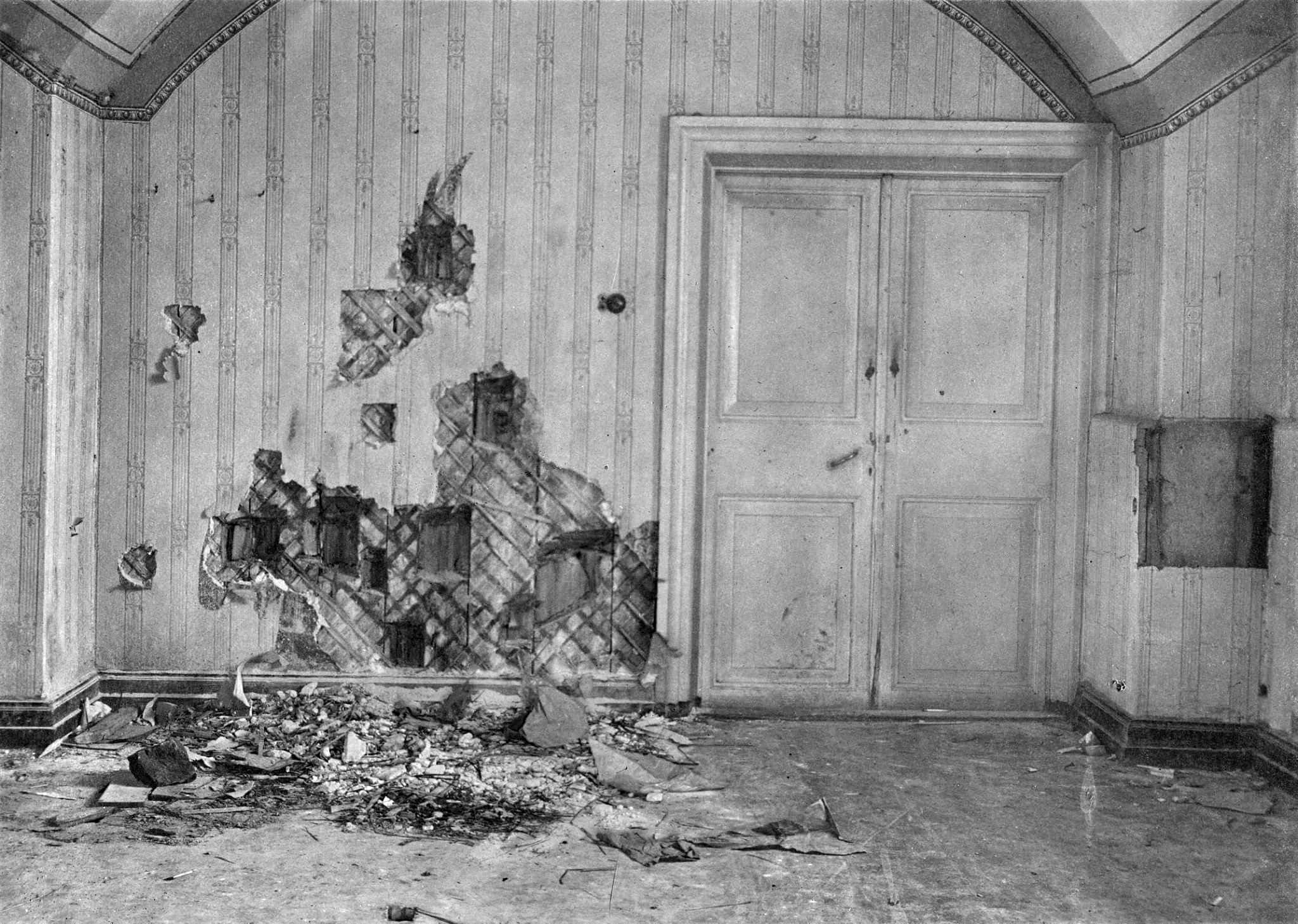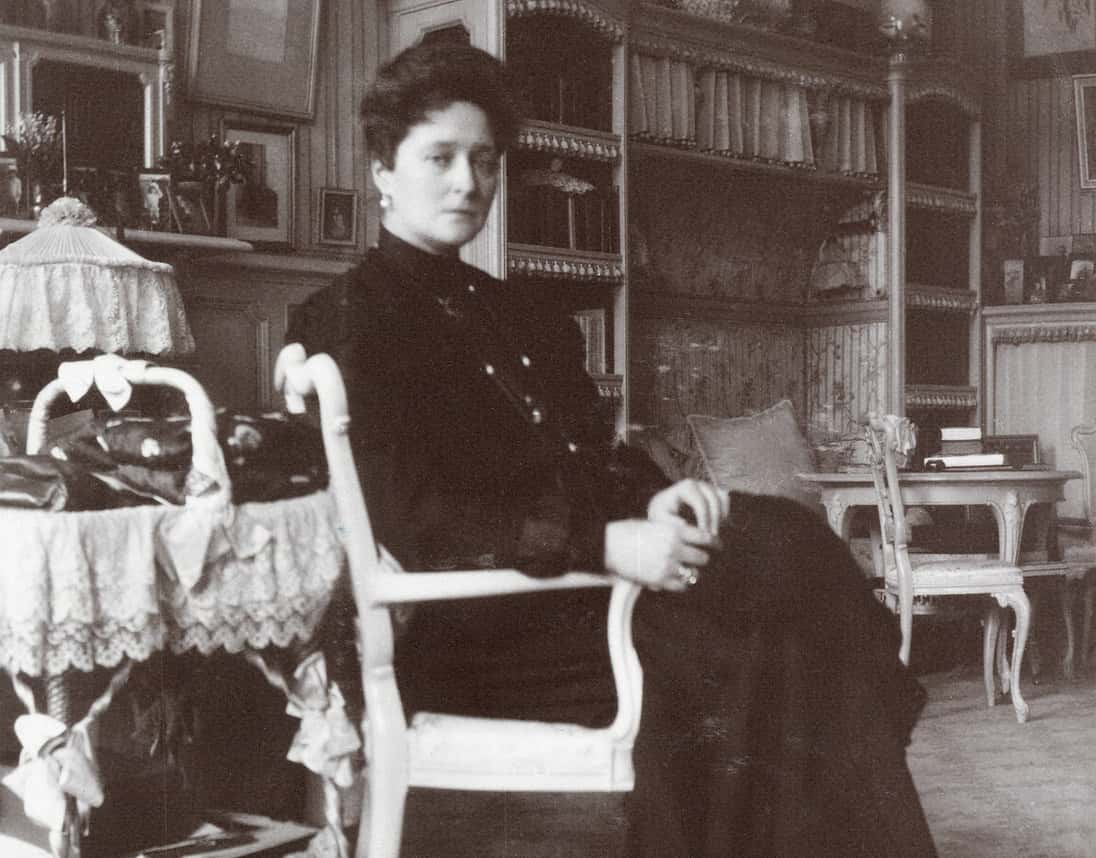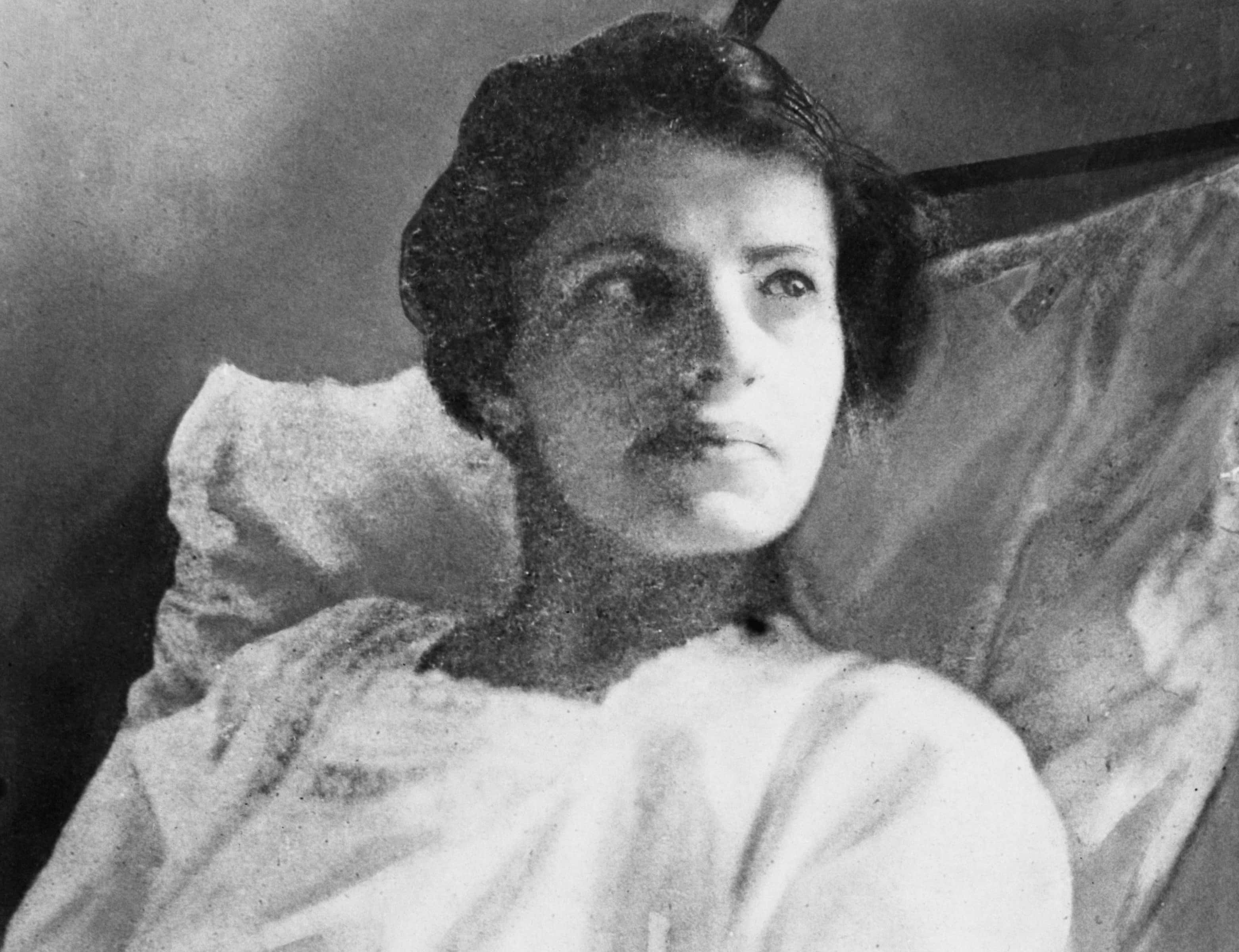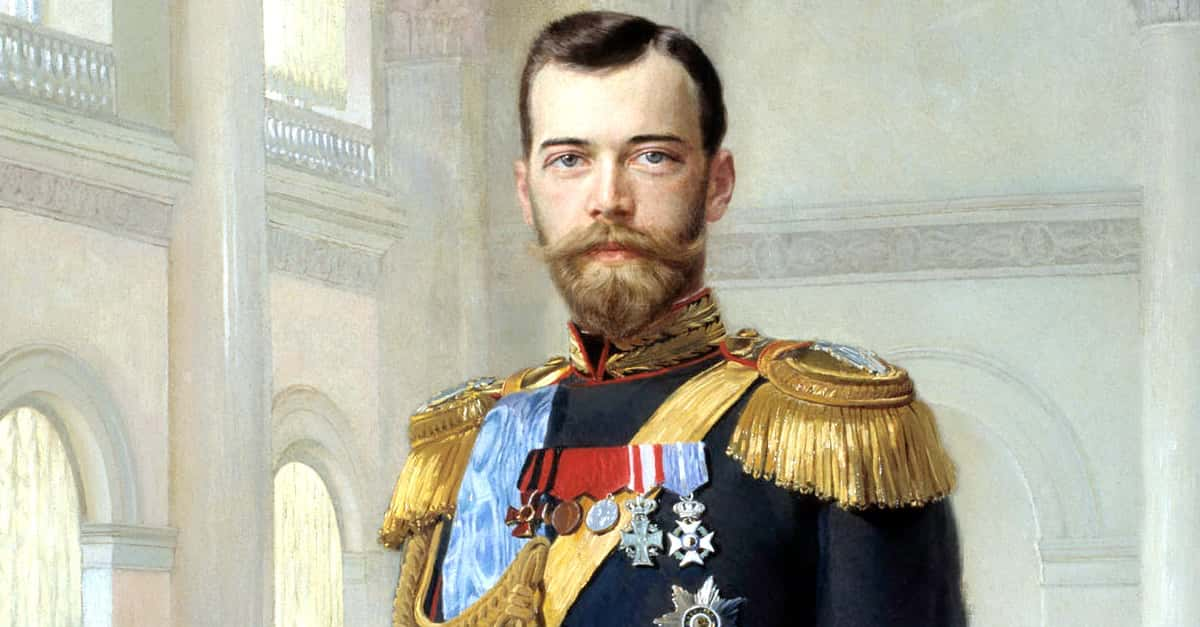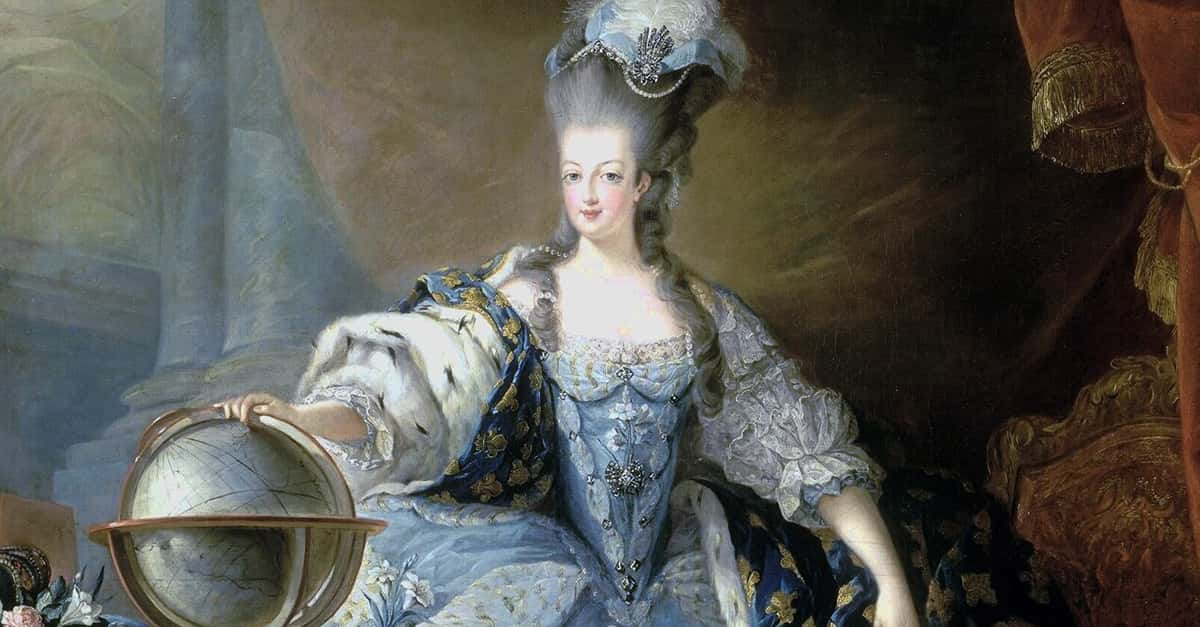Alexandra Feodorovna was a princess of Germany and an Empress of Russia, but none of this privilege saved her from a tragic fate. As one of the last Romanovs, she fell victim first to the dark charms of Rasputin, and then to the Russian Revolution. From her plush beginnings to her violent end, here are 50 imperial facts about Empress Alexandra, the Last Tsarina.
1. Born to Do It
Alexandra didn’t need any man to give her a royal title. She was born Princess Alix of Hesse and the Rhine on June 6, 1872, to Grand Duke Louis IV and Princess Alice of the United Kingdom. She was the second youngest in a large family of seven, and her siblings and parents loved doting on the little girl.
2. A Grand Duchess
Empress Alexandra was more than just a blue blood. Her maternal grandmother was none other than Queen Victoria, and Alexandra was apparently Victoria’s favorite granddaughter.
3. My Way or the Highway
Like her husband Tsar Nicholas II, Alexandra was a firm believer in the divine right to rule. In her view, God gave monarchs absolute power, and it didn’t matter to her that most European nations were moving away from this belief. As her own aunt once wrote, "Alix is very imperious and will always insist on having her own way; she will never yield one iota of power.”
4. Let the Sunshine in
As a child, Alexandra’s mother nicknamed her “Sunny” for her happy, smiling disposition. Later, her besotted husband Nicholas II also took up the practice as a pet name for his wife.
5. Thank You, Next
Alexandra was a headstrong woman. Rumor has it that her grandmother Queen Victoria wanted her beloved Alexandra to become a future Queen of England, but the young girl wasn’t willing to marry just anyone. She rejected a proposal from her cousin the Duke of Clarence and Avondale, even when the family pressured her to say yes.
6. Family Resemblance
From a young age, it was clear that Alexandra was a stunner. She had large eyes and her older sister Elisabeth’s good looks.
7. The English Disease
Growing up, Alexandra’s family hid a dark secret. The men of their royal line tended to suffer from the often-fatal disease hemophilia, an illness that prevents blood from clotting. When Alexandra was barely a year old, her hemophiliac brother Frederich died after a nasty fall. Meanwhile, the women of the line were often carriers of the gene, including Alexandra herself.
8. Saint Alix
In 2000, Empress Alexandra became a Saint in the Russian Orthodox Church.
9. One Fell Swoop
Death visited the royal House of Hesse in 1878. A violent outbreak of diphtheria entered the palace, and many of the children fell ill, along with their father Louis. Alexandra was among them. Her mother Princess Alice refused to leave their sides and nursed most of them back to health, but her loyalty came at a great cost.
In December of that year, Alice took ill and died along with Alexandra’s most beloved sister, Marie. The young Alexandra was reportedly so bereft at the loss that her whole personality turned from cheerful to solemn.

History's most fascinating stories and darkest secrets, delivered to your inbox daily.
10. Sleep It off
Later in her life, the nervous and fear-wracked Empress was addicted to Veronal, a kind of sedative. As she once confessed to a friend, “I’m literally saturated with it.”
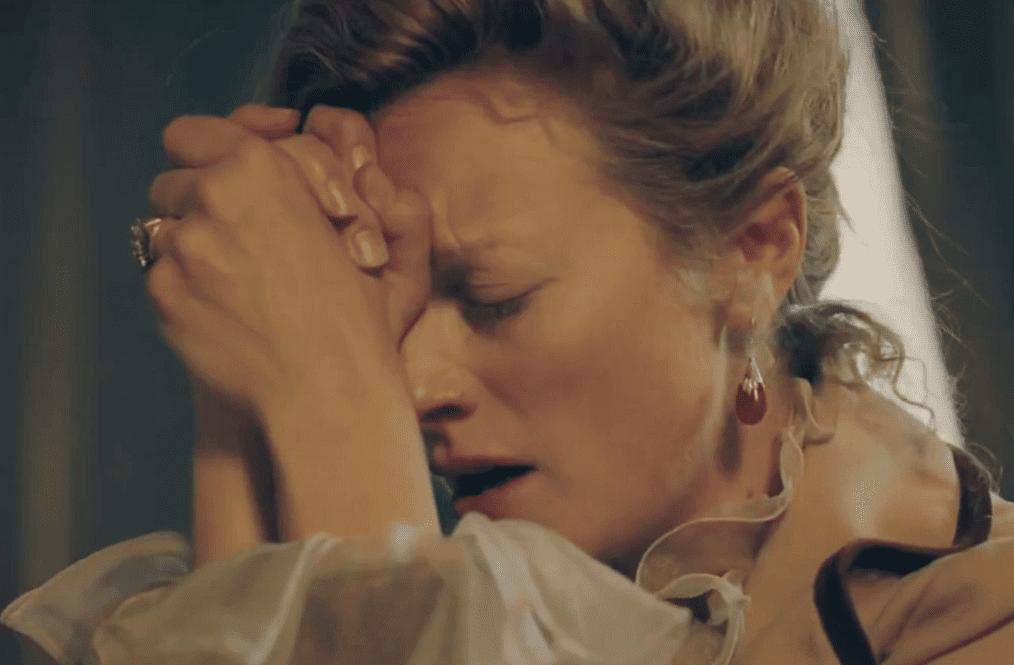 The Last Czars(2019-), Netflix
The Last Czars(2019-), Netflix
11. Russian Romeo
The romantic love story of Alexandra and her husband Tsar Nicholas II is one for the ages. They first met at her sister’s wedding in 1884, when Alexandra was only 12 years old. Over the years, they grew closer and closer, and soon they were both very much in love. Nicholas even spoke of her with aching adoration in his diary.
He wrote: "It is my dream to one day marry Alix H. I have loved her for a long time...For a long time, I have resisted my feeling that my dearest dream will come true."
12. Mother Knows Best
As Tsarina, Alexandra was an unusually hands-on mother, and she insisted on breastfeeding all her babies.
13. Tsar-crossed
Nicholas and Alexandra may have loved each other fiercely, but they were in for utter heartbreak at first. Nicholas’ parents Alexander and Maria were staunchly anti-German and refused him flat out when he asked to marry her. As for Alexandra’s side of the family, Queen Victoria wasn’t too pleased with Russia, and she personally detested Nicholas’ father.
14. Getting Cold Feet
When Nicholas finally proposed to Alexandra, her response was completely unexpected. She refused! Though she loved him, she was nervous about converting from her Lutheran religion to Russian Orthodoxy.
15. Nowhere to Turn
The Romanovs suffered one of the most infamous ends in history, but they might have been saved. After the Russian Revolution, many people in the government wanted to get the royals out of Russia, but no one would take them. Even Nicholas’ cousin King George V of England refused to grant them safe haven because he was afraid of the political repercussions.
16. Dying Wish
Nicholas’s father Alexander III only fully accepted Alexandra as his future daughter-in-law when he was on his deathbed. Still, he did it in style and insisted on giving his blessing in full uniform. He died a few weeks later on November 1, 1894.
17. Picture Perfect
In the early 1900s, photography was beginning to gain global popularity, and Nicholas became quite the shutterbug, taking pictures of his family and their closest friends. Empress Alexandra was also fond of photography and paid for professional photography services. The remaining family photos portray the happiest moments of the brood’s life.
18. It’s a Nice Day for a Black Wedding
Nicholas and Alexandra’s wedding took place on November 26, 1894, but it was far from a picture-perfect day. With his father dead, Nicholas didn’t want to wait until the official mourning period was over to marry his love. As a result, the nuptials had very little pomp and circumstance, at least as royal weddings generally go.
There was no reception or even honeymoon for the two lovebirds, and Alexandra later told her sister that it was “a mere continuation of masses for the dead."
19. The Bride Wore Gold
Mourning or not, Empress Alexandra was resplendent on her wedding day. Her grandfather Prince Albert had designed her veil, and she wore the magnificent Romanov nuptial crown on her head. Oh, plus a 475-carat necklace and earrings that had once belonged to Catherine the Great, not a woman known to skimp on spectacle.
20. Our Little Girl
Less than a year after the wedding, Empress Alexandra had a baby girl, Olga, on November 15, 1895. Though the Tsar and Tsarina certainly needed to produce a male heir, they doted on the girl, and Nicholas remarked, “We are grateful she was a daughter; if she was a boy she would have belonged to the people, being a girl she belongs to us."
21. Age Before Beauty
Empress Alexandra had something of a monster-in-law in Nicholas’ mother Maria Feodorovna. Maria, who was never pro-Alexandra, was very possessive of her son and made no secret of her disappointment. The kicker? Russian court rules dictated that Maria was higher in rank than Alexandra, so the Dowager got to walk into every ball on her son’s arm while Alexandra trailed behind.
22. The Khodynka Tragedy
On May 14, 1896, Nicholas and Alexandra were officially coronated as Tsar and Tsarina—but the day brought a disturbing omen. As a part of the official celebrations, commoners gathered in Khodynka Field in Moscow, only to riot when they thought there wouldn’t be enough food. In the end, thousands of people were tragically trampled to death. Not a good way to start a reign.
23. Keep Calm and Carry on
The so-called “Khodynka Tragedy” was bad enough, but the Tsar and Tsarina’s reactions were even worse. The Imperial couple still attended a ball that night and danced in their finery as if nothing had happened. In truth, Nicholas had wanted to call it off and Alexandra wept when she heard the news, but advisors had urged them to keep the status quo.
It was a fatal miscalculation. It only angered the mourning Russian people more, and they saw their Tsar and his “German woman” as utterly heartless.
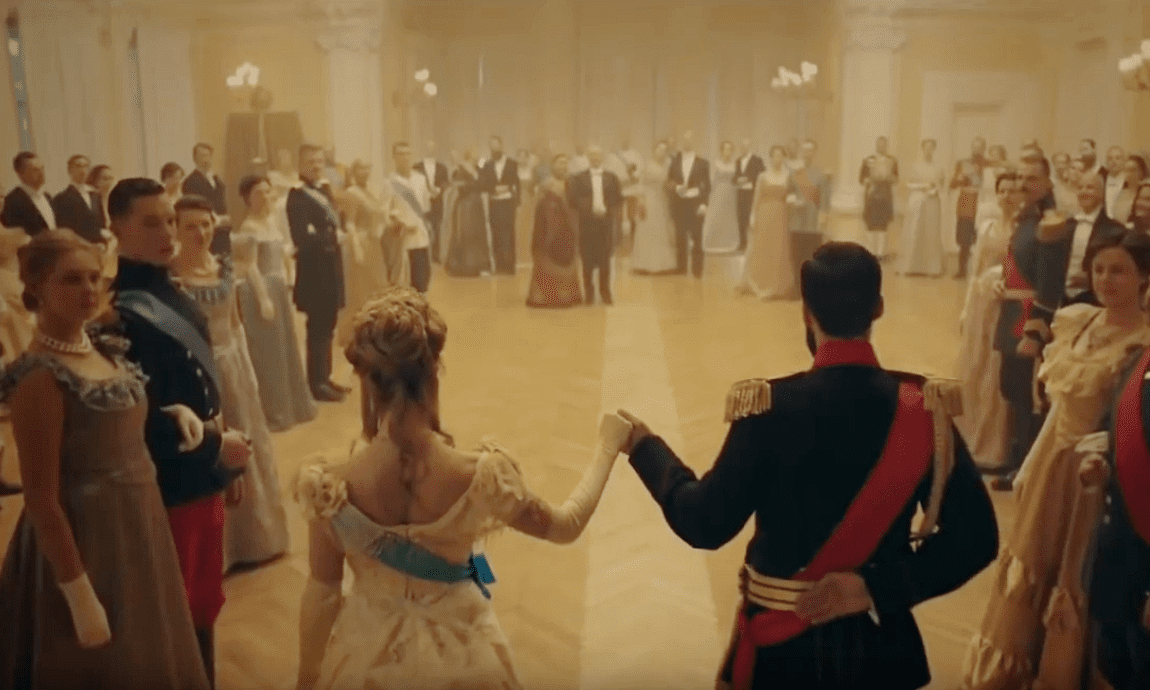 The Last Czars(2019-), Netflix
The Last Czars(2019-), Netflix
24. Ice Queen
The Russian people never took to Empress Alexandra. She was naturally a little shy and reserved on the surface, which many people read as coldness. It didn’t help that she spoke Russian with a heavy accent, or that her mannerisms were distinctly Teutonic.
25. Lovey Dovey
Alexandra’s nickname for Nicholas was “lovey.” These crazy kids make me want to gag.
26. A Gaggle of Girls
To the Russian people, Alexandra’s biggest flaw was her inability to produce a male heir for the throne. Over six short years, she had four children—but they were all girls. Each birth angered Russia even more, and Alexandra was so distressed that when her second daughter Tatiana was born, she burst into tears of disappointment. Her next, Marie, only made it worse.
By the time their fourth girl, Anastasia, came into the world, a distraught Nicholas had to take a long walk to compose himself before he met his new daughter.
27. Golden Boy
In 1904, the long-awaited miracle happened. Empress Alexandra finally gave birth to a boy, the little Tsarevich Alexei. She called him her “sunbeam” and spoiled him for the rest of her life.
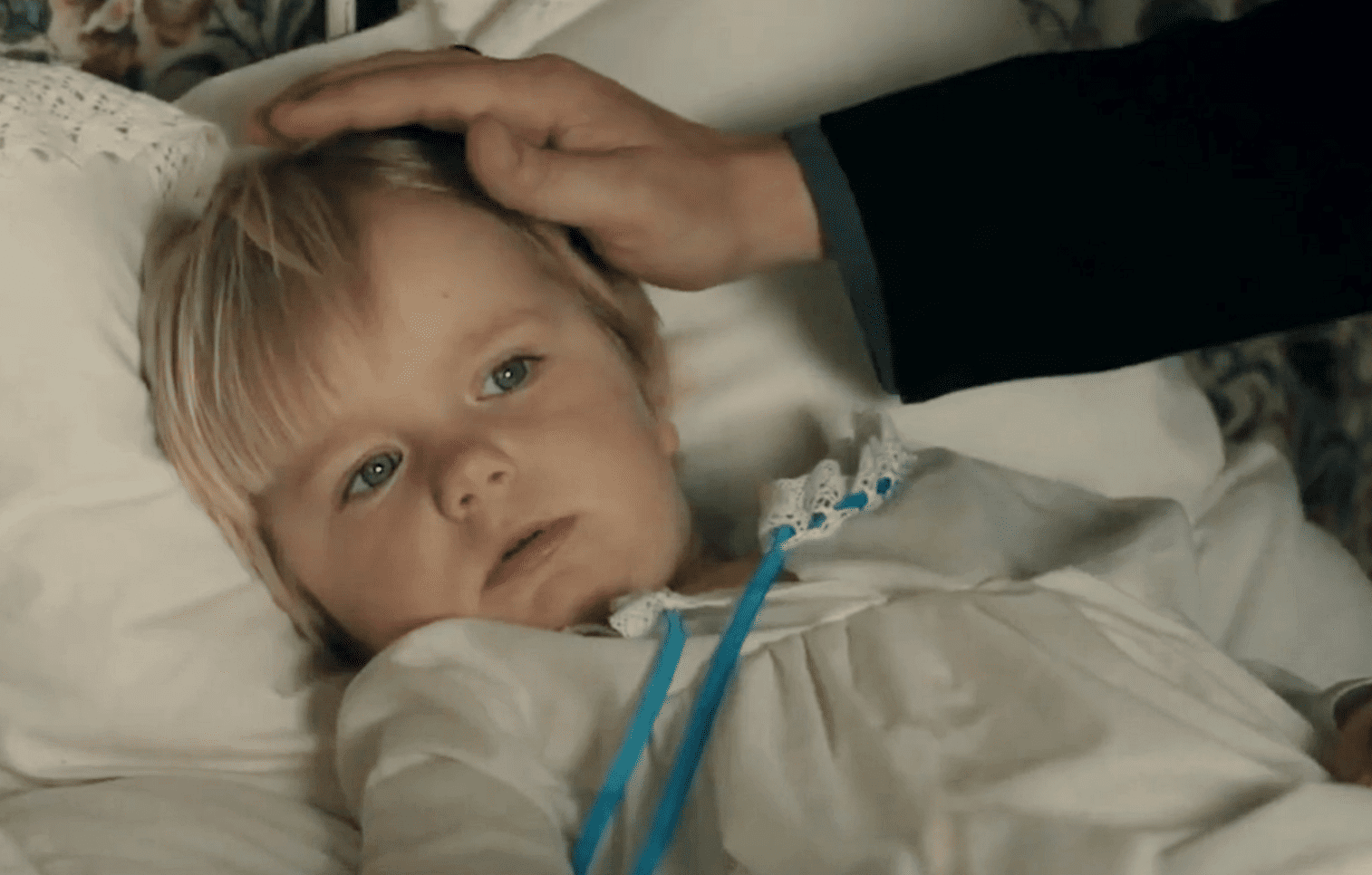 The Last Czars(2019-), Netflix
The Last Czars(2019-), Netflix
28. No Special Treatment
Though you might think that growing up a Romanov means beautiful clothes, jewels, and a luxurious lifestyle, the truth was much different. Empress Alexandra raised her (girl) children according to her own strict upbringing, which meant handing down clothes from daughter to daughter, making them sleep on iron beds, and forcing them to take daily cold baths.
29. Like Mother, Like Son
Almost as soon as her beloved Alexei was born, Alexandra realized the horrific truth. The baby had hemophilia, her family’s cursed disease. The Tsarina knew the illness’s dangers well—it had already killed her brother and her uncle—and she was wracked with grief and guilt over the news. Some even claimed she had a mental breakdown.
30. Catherine the Great
When the young Alix was deciding on her regnal name, she wanted to be “Catherine” at first. It was Nicholas who asked her to take up the more similar “Alexandra.”
31. Keep This Between Us
Because of the seriousness of Alexei’s condition, the Tsar and Tsarina treated their son's hemophilia as a state secret. Empress Alexandra only told her mother- and sisters-in-law the truth almost a decade after he was born.
32. Miss Feodorovna, If You’re Nasty
Nicholas and Alexandra may have been stately monarchs, but they had a very steamy bedroom life. For one, they insisted on—gasp!—sharing a bed. While this may not seem like much, most royal marriages at the time were all business, and many monarchs kept separate bedrooms. But the Tsar and Tsarina got much dirtier than that.
They didn’t just have pet names for each other, they also had pet names for their private parts. Nicholas was “Boysy” and she was “Lady.” Hey, I didn’t say they were original pet names.
33. Dying to Please
All the Romanovs adored Alexei, and reportedly, the mood of the whole Russian court often hinged on how the young, sickly princely was feeling. When he was healthy, the rest of his family was far more relaxed and pleasant, while his more serious episodes would fill everyone, especially Alexandra, with great melancholy.
34. Playing Favorites
Although Nicholas and Alexandra loved their daughters, the girls’ sex greatly hindered their affections, especially after Alexei was born. The Tsar and Tsarina tended to treat them as one, and the four young women even went by the name “OTMA,” an acronym of all their names.
35. Desperate Measures
Though Alexandra at first turned to conventional doctors to heal her son’s sickness, as the years passed she became increasingly obsessed with finding a cure in fringe mystics. Enter: the notorious Grigori Rasputin. To her, this holy man was the only one who could cure her son.
36. A Grave Illness
In later years, nervous exhaustion and her many pregnancies made Alexandra listless and immobile. She ate and slept very little, had swollen feet, and took herbal medicine to strengthen her pulse. Judging by these symptoms, modern doctors believe the Tsarina may have suffered from a thyroid condition called Grave’s disease.
37. Save My Son
One of the more famous incidents involving Alexei and Rasputin occurred in 1912. After a jolt during a carriage ride, the young prince ruptured a still-healing and life-threatening hematoma in his thigh. Frantic for her beloved son, Alexandra sent a telegram to Rasputin. He wrote back, urging her that God was looking after her child and commanding the doctors to leave him alone.
Then, a miracle happened. Amazingly, Alexei’s bleeding ceased of its own accord a couple of days after Rasputin’s letter came. Alexandra took it as divine intervention.
38. Ride or Die Royal
Alexandra was staunchly loyal to Rasputin, even when almost everyone else in Russia, including her husband, despised him. When the police informed her with disgust that Rasputin had exposed himself in a restaurant, the Tsarina only dismissed it as gossip.
39. Unpopular Opinion
Soon enough, all of Russia was spitefully whispering that Alexandra and Rasputin were engaged in an unholy affair. Though there is no evidence to support this, the damage was done. One British ambassador’s daughter even claimed that aristocrats openly spoke in their drawing rooms of the need to assassinate Alexandra for the sake of the nation.
 The Last Czars(2019-), Netflix
The Last Czars(2019-), Netflix
40. Ravenous Rasputin
Though the rumors about his affair with the Tsarina were unfounded, Rasputin's real bedroom habits were even more scandalous. He had a reputation for his massive carnal appetite, and crowds of women followers would gather outside his apartment and wait days to meet him. The court sneeringly called him “The Holiest of Holies.”
41. The War to End All Wars
The outbreak of World War I was the beginning of the end for Alexandra and her family. Not only was Russia plunged into an expensive and deadly conflict, but Alexandra’s German roots also made her even more hated. The Russian people were starving, Rasputin still had a place in the court, and Alexandra was an incompetent governor while Nicholas was away at war.
In 1917, it all inexorably led to the start of the Russian Revolution. Suddenly, the Tsarina and her children were prisoners in their own palace, and the rebels forced Nicholas to abdicate the throne.
42. The House of Special Purpose
The first months of the Romanov family’s life after the revolution were spent in relative comfort, but in 1918, everything took a dark turn. The Bolsheviks took power and moved them to the Ipatiev House, or what the revolutionaries called “The House of Special Purpose.” In Ipatiev, the guards stripped them of all their privileges and royal titles.
43. Bedroom Blessing
Rather than rejecting sin, Rasputin believed that spirituality was grounded in bodily experience. He would often indulge in lovemaking and alcohol, and preached that without sin, one could not repent and reach redemption. Sure...that’s one way to think about it.
44. Everyone’s a Critic
One of the more aggressive guards at the Ipatiev House called the Tsar “Nicholas the Blood Drinker,” while Alexandra was “The German Witch.”
45. Diamond’s Are a Tsar’s Best Friend
Although the Bolsheviks thought they took all of the Romanovs’ jewels the moment they entered “The House of Special Purpose,” Alexandra had a secret up her sleeve. She had told her children to sew emeralds, diamonds, and other baubles into their clothes in case they could ever make a quick getaway and needed money.
It was a shrewd idea, but it came back to haunt them in the most brutal way…
46. This Is How It Ends
Around midnight on July 17, 1918, Bolshevik Commandant Yakov Yurovsky ordered the family doctor to wake up all the Imperial Romanovs and bring them down to the basement of the house. Yurovsky then informed the former Tsar that they were condemned to death. That’s when the firing started—but the execution went horribly, horribly wrong.
47. Twice the Harm
Soldiers shot at an astonished Nicholas and Alexandra first before taking aim at their children. In mere moments, chaos reigned as bullets filled the tiny room with smoke and noise. Yet when the dust settled, the soldiers made a gut-wrenching discovery. All the Romanov children were still alive; the jewels in their clothing had given them protection.
Heartbreakingly, the soldiers had to perform the execution all over again until the dark deed was done. It took 20 excruciating minutes.
48. Hail Mary
In her last moments, the ever-pious Alexandra tried to bless herself with the sign of the cross. She was shot before she could complete the motion.
49. Final Fantasy
For years after the execution, rumors persisted that Princess Anastasia or one of her siblings had somehow escaped the massacre and were alive and well. Most famously, a woman named Anna Anderson showed up in a hospital in the 1920s and claimed she was Anastasia. She bore a striking resemblance to the lost princess, and some believed she could actually be her.
50. Proof Hurts
Recent DNA testing of the Romanovs’ remains, however, confirms the sad truth: Anna Anderson was not Anastasia, and all members of the Imperial family died that day in July.

